African American History and Landmarks at UMD
African American History and Landmarks at UMD
From its antebellum founding through the present day, Terp life has been shaped by more than just those who wrote the official version of history. There was a time when students and visitors of color were outsiders here, but through the sacrifices of earlier pioneers—reflected in our campus fabric—each brick and blade of glass belongs to them as well. Each year during Black History Month, you are invited to explore the legacy of African American people and communities that impacted the life of the University, the State, and beyond through a virtual tour of African American history and landmarks at the University of Maryland, College Park. Hosted by Dr. Kim Nickerson, Assistant Dean for Diversity, Equity, and Inclusion for the College of Behavioral and Social Sciences, the tour is an affirmation of the positive and meaningful African American presence on our campus. Check back here in February 2025 for Black History Month tour dates.
Online Self-Guided UMD African American History & Campus Landmarks Tour
This self-guided walking tour was commissioned by the Office of Diversity and Inclusion and expands on a presentation developed by Dr. Kim Nickerson. Drawing on University Archives, reports by campus colleagues, and other sources, the tour highlights campus landmarks associated with the impact of African Americans at the University of Maryland and throughout history.
Diversity Opportunity Digest
Diversity Research Internships and Programs
25 Years of SRI by the Numbers
Established in 1999, the BSOS Summer Research Initiative (SRI) has enhanced behavioral and social science research and scholarship by providing an opportunity for more diverse students to engage in intensive, summer undergraduate research experiences. We proudly reflect on 25 years of impact and excellence.
Extraordinary facts and outcomes:
- The SRI is the only summer program in the United States that includes every social and behavioral science discipline within the college.
-
Our program has engaged 146 different faculty mentors over 25 years.
-
4,513 students have applied to the SRI since 2007. An average of around 260 students apply each year, but only 12 are selected (< 5%).
-
We receive applications from all over the United States and Puerto Rico.
-
296 scholars have successfully completed the program between 1999 and 2023.
-
SRI scholars have attended many prestigious undergraduate institutions across the United States and Puerto Rico. Here are the top contributing universities, and the number of scholars from those institutions:
Top MSI Universities
•Morgan State University – 20•Howard University – 13•Hampton University – 13•Spelman College – 10•University of Puerto Rico - 6Top Non-MSI Universities
•University of Maryland - 78•University of Florida – 6•University of California, Berkeley – 4•Bowdoin College – 3•University of North Carolina, Chapel Hill – 3•Michigan State – 2•Ohio State – 2•U of Maryland, Baltimore County -2
The SRI 25th Anniversary Celebration
The SRI 25th Anniversary Celebration
The College of Behavioral and Social Sciences (BSOS) celebrated the 25th anniversary of the BSOS Summer Research Initiative (SRI) in July of 2023. The SRI is a proud symbol of how we live up to our credo to Be the Solution to the world’s great challenges. Read more about this landmark event.

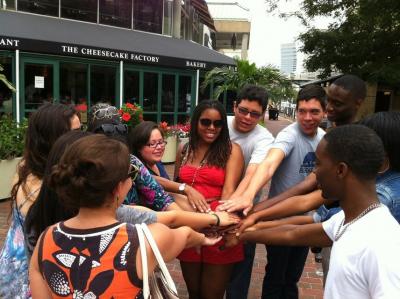
Established in 1999, the BSOS SRI has enhanced behavioral and social science research and scholarship by providing an opportunity for more diverse students to engage in intensive, summer undergraduate research experiences.
Since the SRI encourages them to pursue graduate degrees in our social science disciplines, SRI alumni can now be found as academics in universities, health and mental health service providers in all kinds of settings, attorneys, doctoral-level researchers, analysts, and high level administrators in governmental agencies, NGOs, private industry, teachers and administrators, and a host of other occupations where their diverse perspectives are being used to address some of the world’s great challenges.
Our 25th anniversary celebration included:
- A celebratory reception and dinner
- Social and professional networking
- Research presentations from the 2023 BSOS SRI participants
- Reflections and remarks from selected SRI alumni and selected SRI mentors
- The special presentation of the BSOS Dean's Medal to Dr. Kim Nickerson, SRI director and BSOS Assistant Dean for Diversity, Equity and Inclusion
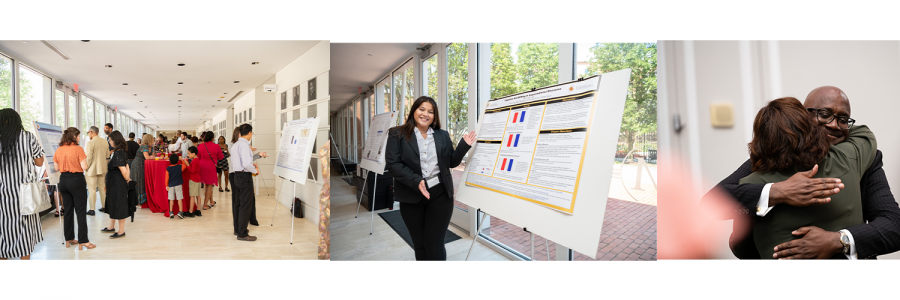
View the 25th Anniversary Event Photo Gallery
View the 25th Anniversary Program
Outstanding Facts and Points of Pride about the SRI
The SRI 25th Anniversary Celebration is an opportunity to join BSOS SRI founder, Dr. Robert E. Steele, and Jean E. Steele in supporting future SRI scholars and ensuring the future of the program through contributions to the Dr. Robert E. Steele and Jean E. Steele Summer Research Initiative Endowed Program Support Fund.

2007
2008
2009
2010
2011
2012
2013
2014
2015
2016
2017
2018
2019
2022
2023
2013 Summer Research Initiative Scholars and Mentors
Sean Anderson is a junior at Baldwin Wallace University in Berea, Ohio, pursuing a double major in neuroscience and psychology, with minors in music and statistics. Sean will pursue a doctoral degree in cognitive neuroscience and seeks research opportunities in auditory perception and cognition. In the fall, he will conduct a thesis in psychology, investigating the electrophysiological correlates to chills experienced in response to music. Sean also works in the Neuroscience Lab at Baldwin Wallace, where he assists in research investigating the pharmacological effects of the anesthetic agent ketamine in developing cortical neurons.
Sean is an undergraduate member of the Society for Neuroscience, and has presented at its general meeting and at the Faculty for Undergraduate Neuroscience satellite meeting. He is the vice president of Baldwin Wallace’s Interdisciplinary Neuroscience Society, is a STEM scholar and also is a member of the Psi Chi Honor Society.
During the Summer Research Initiative (SRI), Sean will work with Dr. Yi Ting Huang, an assistant professor in the Department of Hearing & Speech Sciences.
Cristina Arboleda is a junior majoring in international relations and minoring in French at the State University of New York College at Oneonta in Oneonta, New York. She plans to pursue a doctoral degree in comparative politics, and thus hopes to expand her social science research skills during the SRI to better prepare her for graduate school. Christina also plans to incorporate diverse scientists into her research initiatives and to research topics relevant to diverse communities.
Cristina is interested in comparative politics and social and political thought and is interested in pursuing Europe-focused research such as a studying the European Union. When she returns to Oneonta this fall, she will use the knowledge and skills acquired through the SRI in a project focusing on the effects of French immigration on African countries. This project will be a joint research collaboration with a professor at the College of Oneonta.
During the SRI, Christina will be mentored by Dr. Irwin Morris, chair of the Department of Government & Politics.
Temitope Ariyo is a senior majoring in psychology at Morgan State University. She was born in Lagos, Nigeria, and grew up in Howard County, MD. She is an honor student and a member of Psi Chi Honor Society. Temi’s interests include providing affordable mental health services for low-income families and encouraging the development of more productive members of society through research in clinical psychology.
As an African American female pursuing a doctorate degree in clinical psychology, she intends to diversify the field of psychology and make it more inviting for other African American women who are interested in seeking a higher degree in the behavioral sciences through her own success. Her current research interests include finding non-medicinal remedies for stress-related mental illnesses, as well as exploring the cognitive processes of decision making.
Temi will work with Dr. Jack Blanchard, chair of the Department of Psychology, during the SRI.
Shonise D. Flowers is a senior majoring in psychology with a minor in sociology and hails from Milwaukee, WI. After graduating from Howard University in the fall, she hopes to pursue graduate studies in the field of clinical psychology, a doctoral degree and a career as a behavioral analyst. Shonise’s research interests include analyzing behavioral patterns associated with criminal offenders and the cognitive processes, normal or abnormal, related to those offenses.
Shonise is on the Dean’s List of Howard University’s College of Arts & Sciences and is a McNair Scholar. She also is a recipient of the Trustee Scholarship and a member of numerous honor societies, including Psi Chi International Honor Society and Golden Key International Society.
During the SRI, Shonise will work with Dr. Jonathan Beier, an assistant professor in the Department of Psychology.
Jahnieka Griffin is a geography major with a minor in Geographic Information Systems at the University of Maryland. Her goal for the SRI is to strengthen her research and analytical skills. She is interested in researching social trends from a geographical perspective; specifically, she is interested in how culture plays a role in community development.
Upon graduation, Jahnieka hopes to attend Georgia Institute of Technology and pursue a master’s degree in city and regional planning with specialization in environmental planning and management. Her career aspirations include facilitating sustainable development in rural China and implementing Smart Growth strategies in various countries around the world.
Jahnieka will work with Dr. Ronald Luna, an alumnus of the SRI Program and a member of the faculty of the Department of Geographical Sciences, during the SRI.
Curtis Hooks is a senior majoring in psychology at Morehouse College in Atlanta. Curtis also is a research assistant in the Family Emotions Experimental Lab: Intergenerational Nurture & Gene Studies in the department of Psychology at Georgia State University. This lab investigates mediators of—or potential explanations for—the associations between parental depression and young adult depression, anxiety, alcohol use and dependence, and interpersonal impairment. His research interests include understanding mechanisms that lead to depression and other mood disorders and developing and/or improving related treatments and interventions.
Curtis is a NIMH Career Opportunities in Research Scholar and is a member of Psi Chi National Honor Society. He hopes his participation in the SRI will provide him with additional research experience and professional development that will help him attain a Ph.D. in clinical psychology.
During the SRI, Curtis will work with Dr. Carl Lejuez, a professor in the Department of Psychology and the director of UMD’s Center for Addictions, Personality, and Emotion Research.
Paul Martinez is a senior majoring in sociology at Sonoma State University in Rohnert Park, CA. He was born in Los Angeles and raised in San Diego. Paul’s research interests include race/ethnicity, gender, immigration and class issues and their impact on social inequality. His goal is to pursue a Ph.D. in order to conduct research promoting social equality and to become a sociology professor.
As a participant in the McNair Scholars Program, Paul has conducted research on a multicultural awareness-training program. His research focuses on helping students increase their awareness by learning about inequalities in society and motivating them to become agents of change. With the help of SRI, Paul hopes to gain the training and experience he needs to succeed in graduate school.
Paul will work with Rashawn Ray, an assistant professor in the Department of Sociology, during the SRI.
Eduardo Mejia is a recent graduate of Washington State University in Pullman, WA. He earned a B.A. in criminal justice with minors in sociology and political science. He now attends the University of Central Florida, pursuing an M.S. in criminology. He ultimately hopes to secure a career in the federal branch of government in an agency such as the FBI, and to to evaluate programs and policies and improve them to limit wrongful convictions or unanticipated consequences.
Eduardo’s research interests are in program and public policy evaluation in the criminal justice system. His research on Drug Recognition Experts (DRE): Impaired Driving and the Prescription Drug Abuse Epidemic Challenge is a part of an ongoing partnership between the Washington State University Division of Governmental Studies and Services and Washington State’s DRE program. He received the Student of the Year Award from the College Assistant Migrant Program.
During the SRI, Eduardo will work with Dr. Jean McGloin, an associate professor in the Department of Criminology & Criminal Justice who is affiliated with the Maryland Population Research Center.
Mariah Prensa is a New Yorker and a senior at New York University at Buffalo. She credits her analytical, philosophical and critical thinking skills to her studies in political science. Mariah’s research interests include civic engagement, political competence of young Americans, globalization, U.S. foreign policy and the politics of developing countries.
Mariah plans to pursue a Ph.D. in political science in order to reach her full academic potential. Her ultimate goals are to become a diplomat, philanthropist and educator.
During the SRI, Mariah will work with Dr. Virginia Haufler, an associate professor and director of graduate placement with the Department of Government & Politics and the director of UMD’s Global Communities Living-Learning Community.
Elena Ramirez is from the Washington, D.C., metropolitan area and is a senior at Salisbury University on Maryland’s Eastern Shore. She is majoring in economics with minors in mathematics and business administration. Elena’s research interests are defined by the field of international economics. Specifically, she is interested in economic development in developing regions, foreign investments and their effects on host nations, and multinational trade agreements. She also is interested in international issues such as poverty and the effects different international economic policies have on those who are impoverished.
Elena has presented at the Salisbury University Student Research Conference and is a Franklin P. Perdue School of Business Scholar. She also is a member of the Beta Gamma Sigma, Pi Gamma Mu and Phi Kappa Phi Honor Societies, and of the Delta Gamma Fraternity. Elena intends to pursue a doctoral education in economics, and aspires to work with international economic policies in the future.
Elena will work with Dr. Jessica Goldberg, an assistant professor in the Department of Economics, during the SRI.
Karrie Emma Woodlon attends Morgan State University in Baltimore, MD. She is a junior majoring in psychology and hails from Pikesville, MD. Karrie is active in the Psychological Society at Morgan State University, serving as treasurer. Her research interests include the impact of a child’s environment on his or her social, emotional, behavioral and academic success.
After graduating from Morgan State, Karrie plans to earn an M.A. in school counseling and a Ph.D. in counseling. As a school counselor, Karrie would be interested in working with elementary school children and their families in order to successfully contribute to each child’s social and academic success.
During the SRI, Karrie will work with Dr. Andrea Chronis-Tuscano, an associate professor in the Department of Psychology.
2014 Summer Research Initiative Scholars and Mentors
The College of Behavioral and Social Sciences is proud to introduce its 2014 Summer Research Initiative scholars. The SRI is part of the College's longstanding commitment to increasing the number of underrepresented minorities who pursue graduate degrees in the social, behavioral and economic sciences. Each year, a talented and diverse group of scholars work with BSOS faculty members to gain laboratory experience that enhances their research knowledge and skills and to increase the students’ knowledge of, and interest in, doctoral-level training in the social, behavioral and economic sciences. Learn more about the SRI.
2014 SRI Scholars
Ogue Addeh is majoring in psychology with a minor in computer science at the University of Maryland. Her interests lie in social psychology, particularly interpersonal interaction, stereotypes,self-concepts, the creative process and the career choice process. Recently, Ogue was a research assistant within the Cultural Psychology Lab, where she helped conduct a study that explored how people react to wrong-doing within personal friend groups. She plans to pursue a doctoral degree and a career as a research psychologist.
During the SRI, Ogue will work with Dr. Edward LeMay, an associate professor in the Department of Psychology.
Beverly Auman is a senior at George Mason University in Fairfax, Virginia. She is a double major in anthropology and economics with a minor in nonprofit studies. Her research interests include youth development and education. She also works for the Center for Social Science Research as a survey interviewer, and she is involved in the community service fraternity Alpha Phi Omega. Auman recently returned from a semester abroad at Oxford University in the United Kingdom. She hopes to attend graduate school and conduct research concerning issues for urban youth, such as societal violence, education and poverty. Ultimately, she hopes to pursue a career as a university professor conducting research in improving the public education system. Auman is also interested in supporting efforts to increase the quality of educational opportunities available to students living in under-resourced communities.
During the SRI, Auman will work with Dr. Odis Johnson, Jr., an associate professor and interim chair of the African American Studies Department.
Timothy Cordova is a senior government and politics major at the University of Maryland. He is a member of the Honors College and is a recipient of the President’s Scholarship. He also has served as a researcher for UMD’s Center for American Politics and Citizenship. His research interests are in American politics, especially in party politics and polarization in Congress. He is working on a research project with Dr. Frances Lee, a professor in the Department of Government and Politics, on the federal debt ceiling and how party politics have affected this crucial legislation. Cordova hopes to obtain a graduate degree to further advance his studies in the field.
Cordova will continue to work with Dr. Lee during the SRI.
Jasmine L. Davis attends the University of California, Los Angeles. She is a senior majoring in sociology with a minor in gender studies. Her research interests include black feminist theory, symbolic interactionism, African American populations and identity formation. Davis participated in the UCLA Ronald E. McNair Scholars Program, where she researched African American women and their social and economic investment in their hair and how it affects their perception of self. Davis has presented at the National McNair Conference. Davis intends to pursue a dual doctorate degree in sociology and African American studies. She hopes to work in the government sector to help increase opportunities for students of color in academia, and to ultimately become a professor at a research institution.
During the SRI, Davis will work with Dr. Rashawn Ray, an assistant professor in the Department of Sociology.
Kyle Dorsey is a recent graduate of the University of Maryland, where he majored in criminology and criminal justice. His research interests include understanding what motivates individuals to commit delinquent and criminal behaviors, and what factors deter non-offenders from committing such behaviors. Dorsey plans to pursue a Ph.D. in criminal justice at the University of Maryland, and to ultimately become a professor.
During the SRI, Dorsey will work with Dr. Jim Lynch, chair of the Department of Criminology and Criminal Justice.
Casey Gaskins is a hearing and speech sciences major minoring in Spanish at the University of Maryland. She is a member of the Honors College University Honors program, the Primannum Honor Society and the National Student Speech-Language and Hearing Association. Her research focuses on the effects of communication disorders and hearing impairments upon speech perception and daily life. Gaskins will pursue a master’s degree in speech-language pathology while obtaining full-time employment within a facility that permits the implementation of acquired experiences and knowledge of hearing and speech sciences, and hopes to one day obtain a doctoral degree and practice speech-language pathology.
Gaskins will work with Dr. Matthew Goupell, assistant professor in the Department of Hearing and Speech Sciences, during the SRI.
Modibo Haidara is pursuing a dual degree in Geographic Information System and behavioral and community health with a minor in global poverty at the University of Maryland. His primary research interests include the use of remote sensing to analyze environmental parameters such as precipitation, temperature and vegetative cover to characterize malaria transmission risk in developing countries. He hopes to pursue a career in international development. Recently, Modibo was an intern at the Millennium Challenge Corporation where he served on a project to increase the access of open data in Africa as an incentive for businesses to invest in the African economical market. Haidara hopes to pursue an advanced degree in global health.
During the SRI, Modibo will work with Dr. Matthew Hansen, a professor in the Department of Geographical Sciences.
Elvis Herrera attends the University of Maryland, majoring in Geographic Information Science. He participated in a team project through his geography class which submitted a winning proposal for economic development of a Latin American country. This proposal was granted a $10 billion grant by the Organization for Latin-American Unity. Through this grant, Herrera hopes to continue researching more about Latin American issues. Herrera plans to pursue a master’s degree in Geographic Information Science.
Herrera will work with Dr. Matthew Hansen, a professor in the Department of Geographical Sciences, during the SRI.
Amanda Holmes attends Howard University as a senior psychology major and an allied sciences minor. Her research focuses on neuroscience. Holmes is a participant of the Howard University Minority Access to Research Careers Program, where she conducts neurophysiology research under the direction of Dr. Mark Burke on the amygdala with respect to pediatric SIV infection. Holmes plans to pursue a master’s degree in public health before entering an M.D.-Ph.D. program.
Holmes will work with Dr. Erica Glasper, an assistant professor in the Department of Psychology, during the SRI.
Celena Jenkins is a psychology major at Morgan State University where she is a member of the National Council of Negro Women Inc., Psi Chi International Honor Society in Psychology and the Golden Key Honour Society. Her current research interests include the role of mental health in education, sexually transmitted diseases and fitness. Jenkins hopes to earn a Ph.D. in clinical psychology before pursuing a career with the Department of Juvenile Services, and then teaching at a university.
During the SRI, Jenkins will work with Dr. Carl Lejuez, chair of the Department of Psychology.
Taelor Jones is a senior psychology major at Morgan State University whose research interests include the impact of environmental factors on the behavior of juveniles in underprivileged families and neighborhoods. Jones serves as the corresponding secretary of the Psychological Society at Morgan State, and is also a member of the Golden Key International Honour Society and the Alpha Kappa Mu Honor Society. She plans to pursuema doctoral degree in forensic psychology.
During the SRI, Jones will work with Dr. Jack Blanchard, chair of the Department of Psychology.
Byron Marroquin is a recent graduate of the University of Maryland, College Park where he double majored in geographical sciences and criminology and criminal justice. His research focuses on environmental criminology, where crime and victimization are studied from a spatial perspective. As a McNair Scholar, Marroquin researched Hispanics, cultural space and educational attainment in Maryland from a spatial perspective. His paper won the departmental Harper Writing Award and his research will be featured in Geograffiti, a departmental newsletter. Marroquin plans to pursue a master’s degree in geography and a Ph.D. in criminology before ultimately becoming a professor at a university.
Marroquin will work with Dr. Matthew Hansen, a professor in the Department of Geographical Sciences, during the SRI.
Samantha Martin attends Roosevelt University in Chicago as a sociology major with a minor in psychology. She is a member of Alpha Kappa Delta, the International Sociology Honors Society. Her research interests include inequity in education, juvenile criminalization and incarceration, and racial and ethnic relations, as they relate to the school to prison pipeline. She works with the Mansfield Institute for Social Justice, where she helps facilitate restorative justice practices in Chicago Public Schools, and as a research assistant. Martin hopes to develop intervention and restorative justice programs in Chicago. She has been accepted into the accelerated master’s program in sociology at Roosevelt University, and ultimately will pursue a Ph.D. in sociology.
During the SRI, Martin will work with Dr. Jim Lynch, chair of the Department of Criminology and Criminal Justice.
Ana Medina Fetterman attends Ohio State University, where she studies psychology. Her research focuses on the intersection of culture and psychology, particularly the influence of language acquisition on personality and identity construction. Medina Fetterman is considering a career as a clinician or in the academic sector, and plans to pursue a graduate degree.
Medina Fetterman will work with Dr. Yi Ting Huang, assistant professor in the Department of Hearing and Speech Sciences, during the SRI.
Yadira D. Molina is a political science major at Sonoma State University in Rohnert Park, California. She is working on a research project for the McNair Scholars Program on the Latino Vote Choice in 2008. She was an Honorable Delegate at the National Model United Nations Conference in New York City. She also will serve as a Panetta Institute Congressional Intern in Washington, D.C., for the fall 2014 semester. Her research interests include women’s issues, minority rights and the relationship between criminal and political organizations in Latin America. She hopes to pursue a Ph.D. in international affairs and to work in the field of foreign affairs, ideally at the U.S. Department of State.
Molina will work with Dr. Antoine Banks, professor in the Department of Government and Politics, during the SRI.
Bryant Wesley Randolph is a junior psychology major and child development minor at the University of Memphis. His research interests include developmental, family, social and cognitive psychology, and in motivation and the racial and ethnic and gender differences in body image. Randolph plans to earn a Ph.D. in psychology before pursuing a career as an educator and as a praciticng clinical psychologist.
Randolph will work with Dr. Rashawn Ray, an assistant professor in the Department of Sociology, during the SRI.
Alexandra Rodriguez is a recent graduate from the University of Maryland, where she majored in Geographic Information Science (GIS) and computer cartography with a minor in Spanish language and cultures. She has interned for NOAA, National Geographic and UMD Facilities Management. Her research focuses on human geography, specifically the development of Latino communities in the U.S., and integrating GIS to help improve these communities where needed. She will pursue a Master of Professional Studies in the Geospatial Information Sciences Program at UMD. Her goal is to better her GIS capabilities to help communities to survive in this fast-paced world.
During the SRI, Rodriguez will work with Dr. Matthew Hansen, a professor in the Department of Geographical Sciences.
Nishell Savory is a junior at Morgan State University in Baltimore, majoring in psychology. Savory’s primary research interest is to examine memory retention and to scrutinize how one’s environment affects their behavior. She is a member of Psi Chi and Golden Key Honor Society. Savory plans to pursue a doctorate of psychology in cognitive psychology.
During the SRI, Savory will work with Dr. Matthew Roesch, a professor in the Department of Psychology.
Claudia Vargas is a senior enrolled in the B.A./M.A. program in economics and the B.A. program in math at Hunter College, City University of New York. She is a Mellon Mays scholar and participated in the Ivy Plus Conference. She also interns for the Welfare Rights Initiative, an organization that works to ensure that everybody has access to education. Vargas’s research interests focus on developing countries, specifically the impact of economic crises on long term educational achievement. She has researched the effects of education policy changes on high school dropout and graduation rates. Vargas plans to pursue a Ph.D. in development economics and international relations.
Vargas will work with Dr. Raymond Guiteras, an assistant professor in the Department of Economics, during the SRI.
2015 Summer Research Initiative Scholars and Mentors
Established in 1999, the prestigious Summer Research Initiative (SRI) is part of the College’s longstanding commitment to increasing the number of underrepresented minorities who pursue graduate degrees in the social, behavioral and economic sciences. Each year, a talented and diverse group of scholars work with BSOS faculty members to gain laboratory experience that enhances their research knowledge and skills. The program also increases the students’ knowledge of, and interest in, doctoral-level training in the social, behavioral and economic sciences.
The College is proud to welcome its 2015 cohort of Scholars and Mentors.
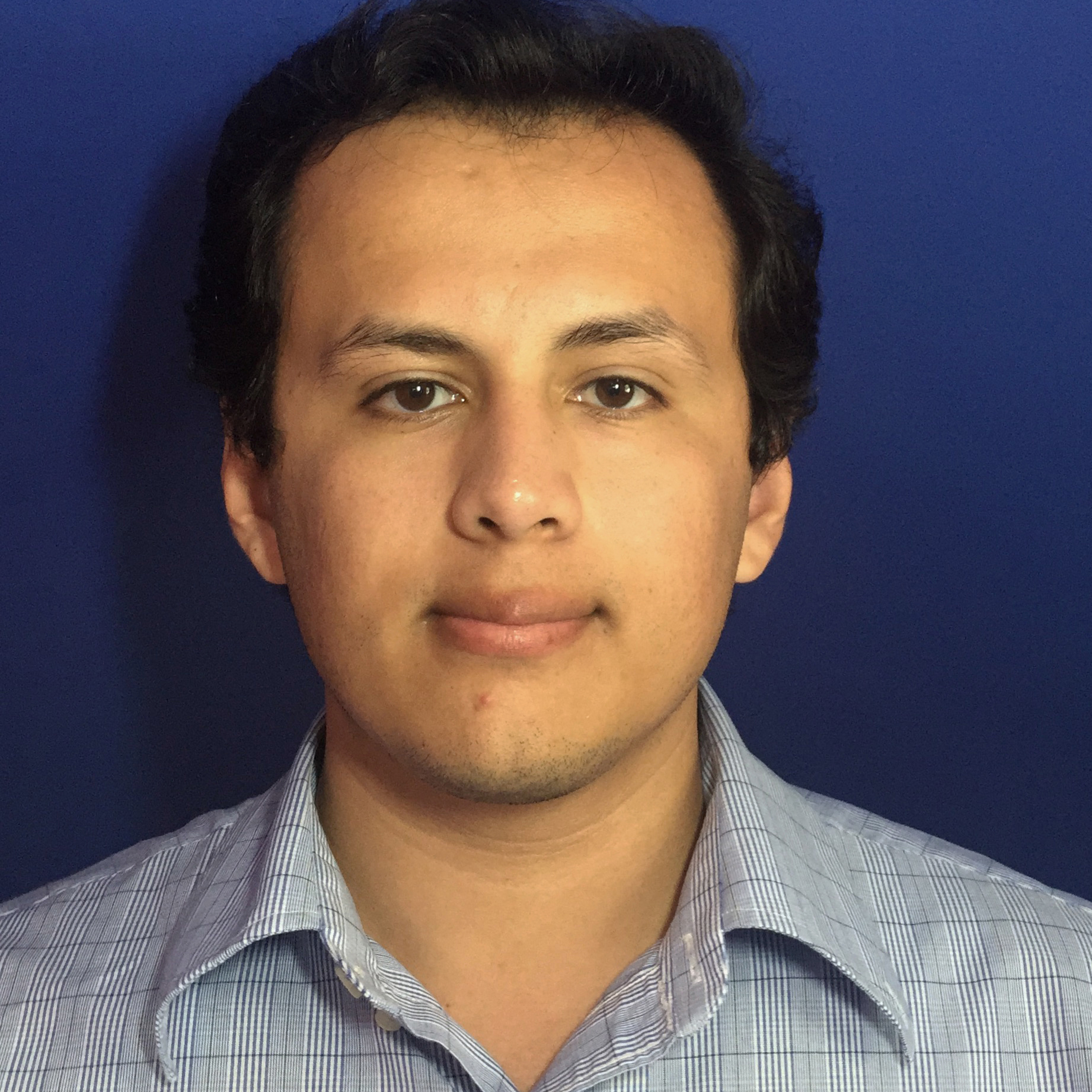
Ricardo Aguilar is a senior geographical sciences major at the UMD with a focus in geographic information system (GIS) and remote sensing. He also is a teaching assistant. Ricardo’s research interests include environmental systems and climate change, and he wants to use remotely sensed data to study how human interaction affects the different ecosystems around the world. Ricardo plans to attend graduate school and obtain a degree in geographical sciences with a focus on remote sensing and environmental science. He ultimately wants to join the faculty of a university.
During the SRI, Ricardo will work with Professor Matthew Hansen in the Department of Geographical Sciences.
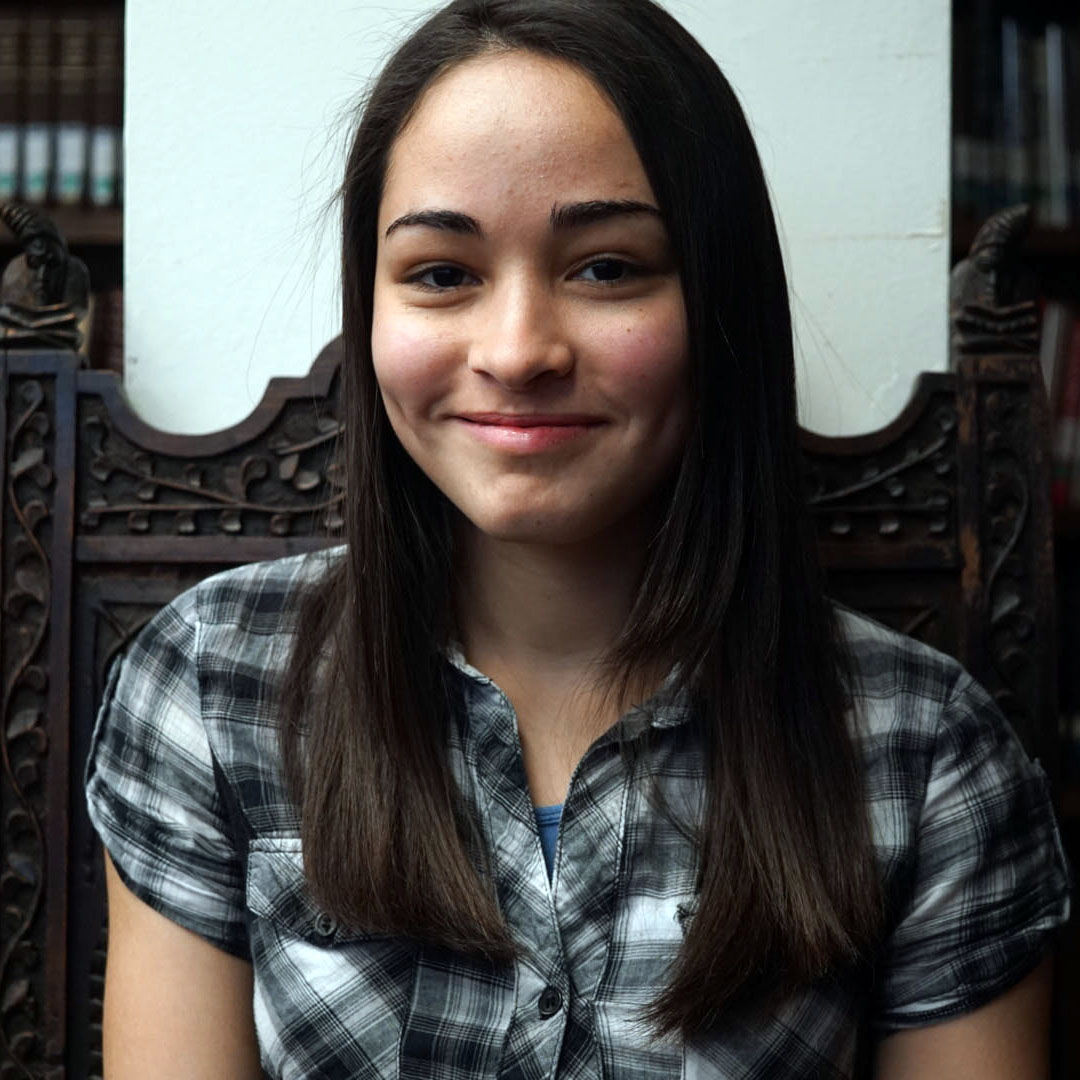
Stephanie Marie Bermudez-Cruz is a psychology major and Keystone Honors Academy student at Cheyney University of Pennsylvania. Stephanie peer tutors students in Spanish and is a member of the Alpha Nu Rho chapter of the Sigma Tau Delta international English honors society. She also was nominated to join the National Society of Leadership and Success. Stephanie will spend her time in the SRI program focusing on the biology of brain and behavior, particularly in area of human emotion. She wants to enhance the understanding of the neurological underpinnings for disorders in mood, such as depression, in order to help create effective cognitive-behavioral health treatment programs. After graduation, she hopes to pursue a Ph.D.in biological psychology or behavioral neuroscience.
Assistant Professor Alexander Shackman of the Department of Psychology will mentor Stephanie during the SRI.
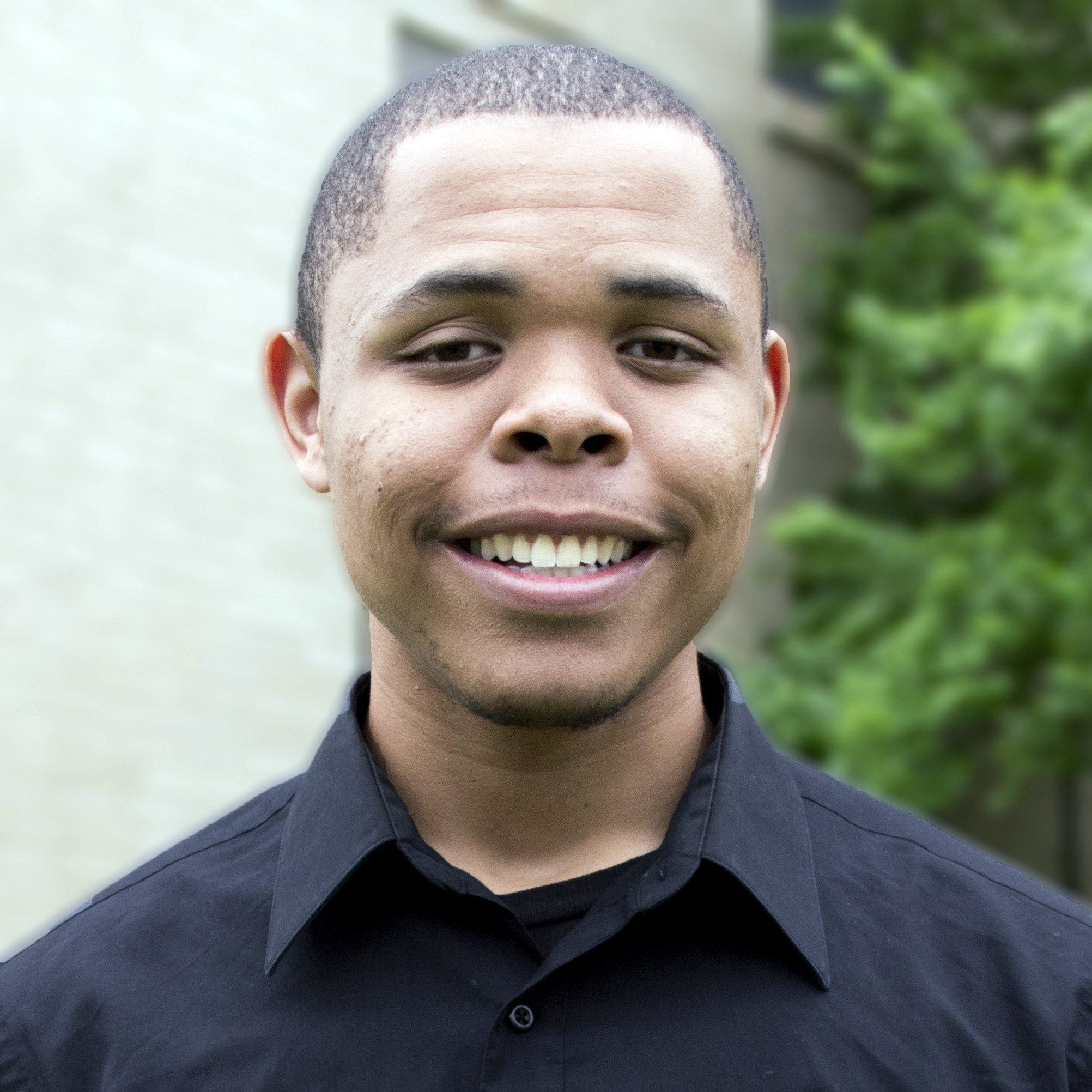
Eric Craig is a senior at Xavier University of Louisiana, majoring in political science and minoring minor in mass communications. His fields of interest include gun laws within the United States, comparative politics regarding sustainable development in developing countries, and public policy. Eric previously severed as a George Washington Carver research intern at the University of Arkansas at Fayetteville, and is also a member of the Pi Gammu Mu international honor society for social scientists. Eric’s recent work on why states are adopting Stand Your Ground laws was presented at the Southern Political Science Association in January. Eric plans to attend graduate school to earn a doctorate degree in political science.
During the SRI, Eric will work with Professor Irwin Morris, chair of the Department of Government and Politics.
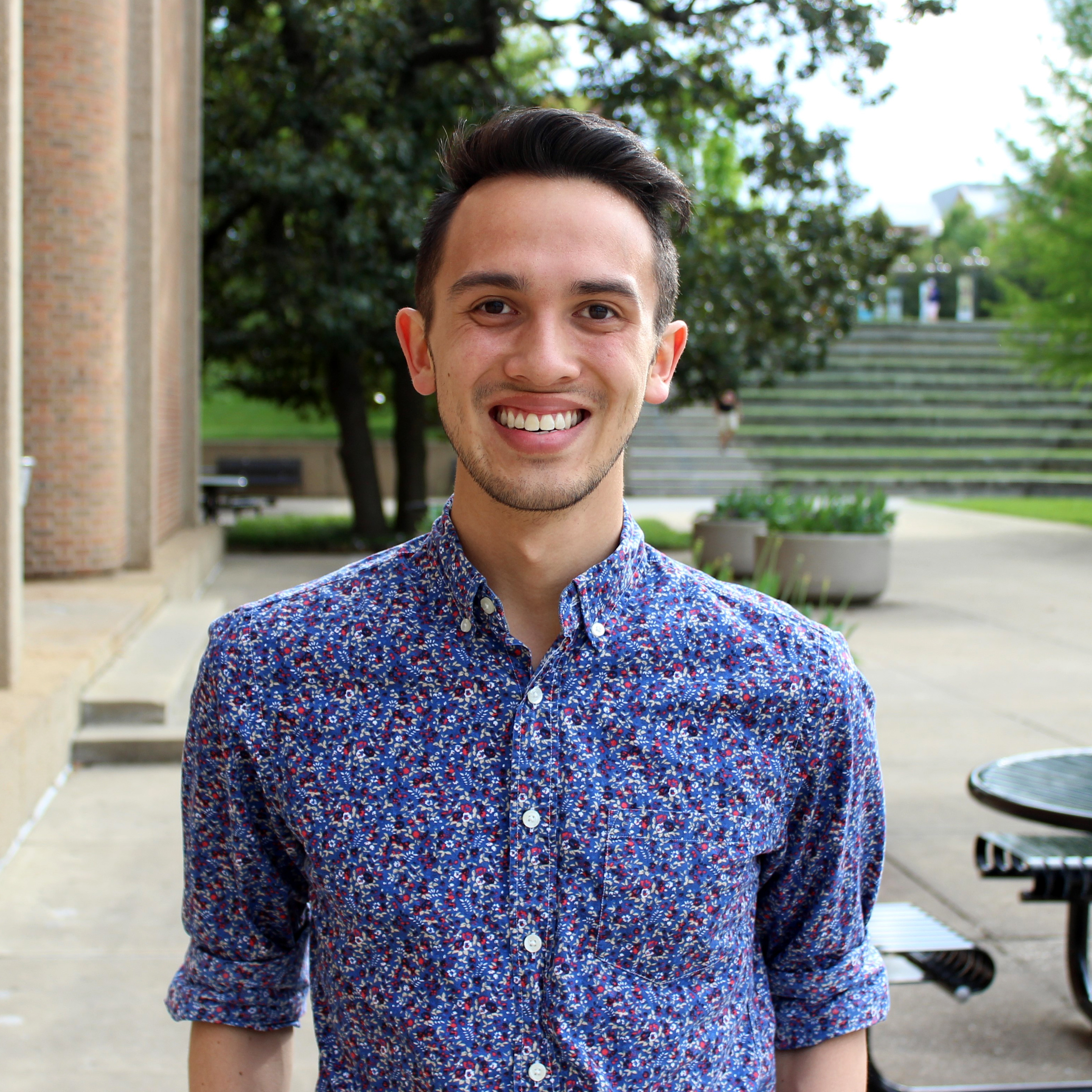
Brandon Darr is a junior College Scholars major at the University of Tennessee. His self-directed programs focus on the intersection of linguistics, education and public policy. His research interests include psycholinguistics; second language acquisition; sociology of education; educational linguistics; heritage language education; bilingual and bicultural education; educational policy; and language policy. Brandon plans to pursue a doctoral degree and wants to return to an institute of higher learning as a faculty member and researcher.
Professor Rochelle Newman, chair of the Department of Hearing and Speech Sciences, will mentor Brandon during the SRI.
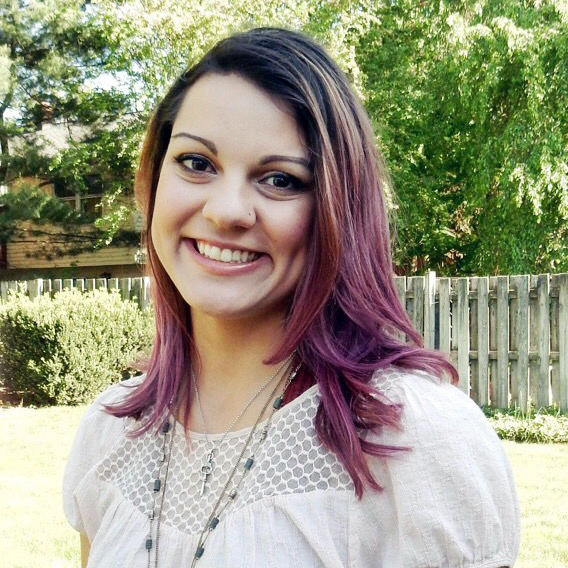
Giselle Hernandez is a senior majoring in cultural anthropology and in communication at Rutgers University. She is currently working on a research project about aesthetic preferences in relation to class and race, specifically in terms of fashion. Hernandez was recently accepted to the Aresty Research Assistant Program in the department of Latino and Hispanic Caribbean Studies at Rutgers. She plans to pursue a Master’s or doctoral degree in anthropology or cultural studies.
During the SRI, Giselle will work with Dr. Brooke Bocast, a postdoctoral fellow in the Department of Anthropology.

Jacqueline Lepe is a senior at the University of California, Santa Barbara, where she is a McNair scholar and a double major in sociology and Spanish, with a minor in feminist studies. Her specific research interests include juvenile justice and educational equity, particularly in the growing incarceration rates of young women of color and in determining whether these young women receive adequate support within the juvenile justice system to ensure their well-being once released. Jacqueline has worked as a lead research assistant for more than two years in multiple projects in the sociology department. Jacqueline plans to pursue a doctorate degree in sociology or criminal justice, and hopes to become a professor and researcher at a higher education institution.
During the SRI, Jacqueline will work with Assistant Professor Kiminori Nakamura in the Department of Criminology and Criminal Justice.
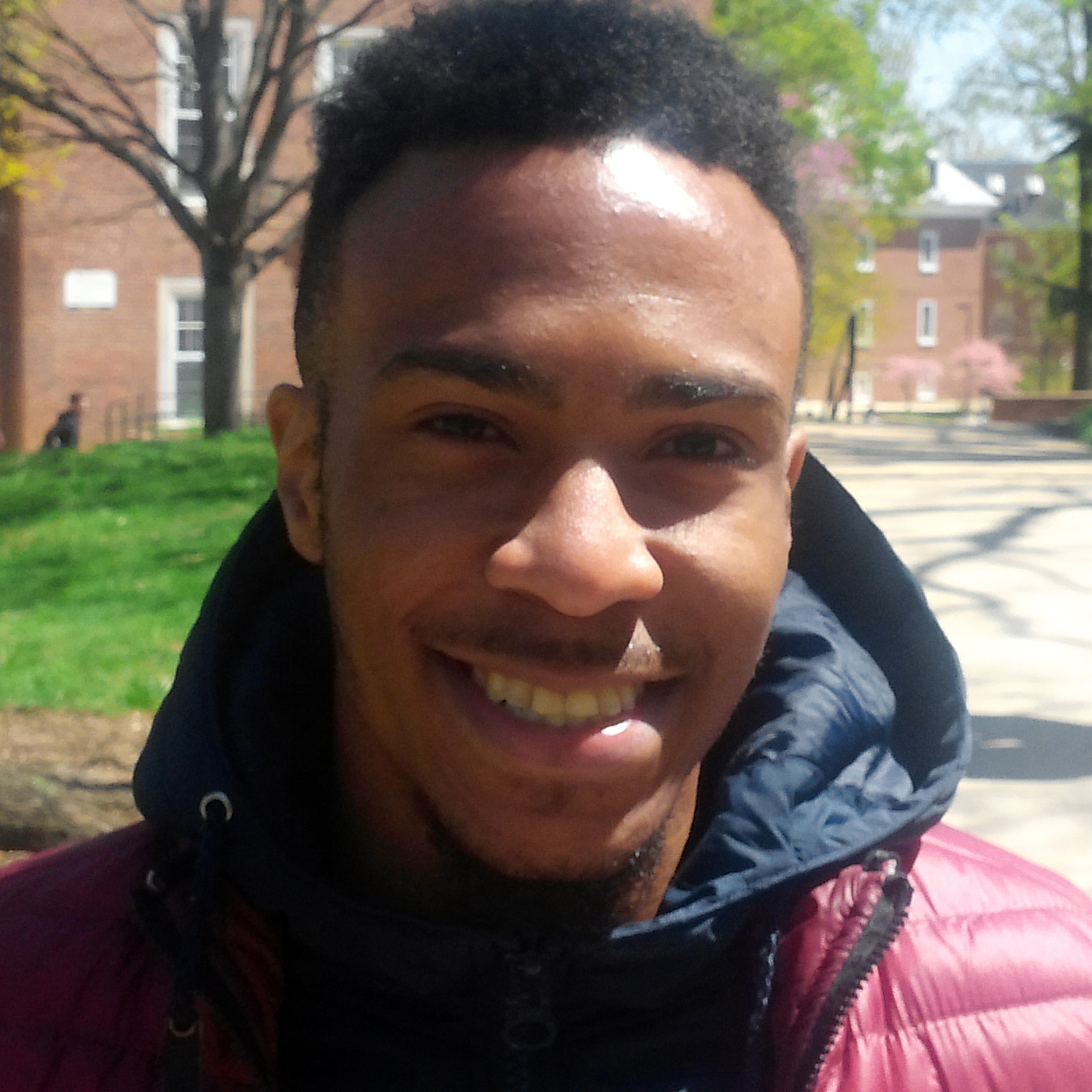
Chima Okpa is a senior geographic information systems (GIS) major at UMD with an interest in international and sustainable development. His research focuses on the effects of structural and sustainable development in developing communities and related implications on the lifestyles of individuals living in developing countries. Chima was recently an intern with the WindAid Institute, a non-governmental organization, where he designed, built and installed wind turbines for a fishermen community in Playa Blanca, Peru. He intends to pursue two Master’s degrees in GIS and international development to later work in the field of structural and sustainable development in developing countries.
Chima will work with Professor Matthew Hansen in the Department of Geographical Sciences during the SRI.

Grace Oni is a junior majoring in psychology at Morgan State University, where she is on the dean’s list. She belongs to Alpha Lambda Delta, the National Society of Collegiate Scholars and the Chi Alpha Epsilon honors society. She also is a member of the National Society of Leadership and Success. She is a research assistant for Dr. Terra Bowen-Reid, studying social risk factors and cardiovascular health in African American College Students. Grace is interested in research dealing with the brain and the intricacies of an individual’s behavior. She hopes to pursue a doctoral degree to become a clinical psychologist.
Grace will work with Professor Jack Blanchard, chair of the Department of Psychology, during the SRI.
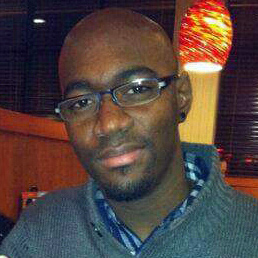
Chris-Dé-Vaun Parker is a senior sociology major and a Ronald E. McNair Scholar at State University of New York, the College at Brockport. His primary research interests include the complexities of assimilation and racial or ethnical self-identification among immigrants of color from the Caribbean and Africa. He works as an Academic Advisor for the Collegiate Science and Technology Entry Program, housed at a local community college. He aims to pursue a Ph.D. in sociology in one or more of the following concentrations: the sociology of culture; global and international studies; or structured inequality.
Associate Professor Kris Marsh in the Department of Sociology will mentor Chris-Dé-Vaun during the SRI.
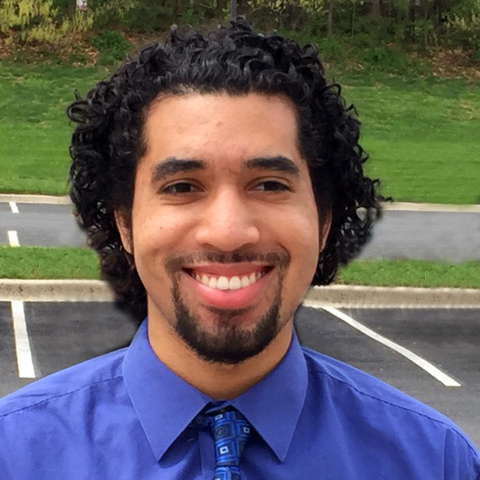
Stanley Portillo is a senior double major in mathematics and economics at UMD. He is a member of the Primannum Honor Society and the Math National Honors Society. He also is a research assistant for the Department of Economics and is researching the impact of unionization on wages and employment during the Great Depression. Stanley also focuses his research on the determinants of inequality; he plans to examine whether deunionization is in part responsible for the rise in pay for corporate executives. Stanley plans to pursue a Ph.D. in economics and to work at the Federal Reserve.
Stanley will work with Assistant Professor Ethan Kaplan of the Department of Economics during the SRI.
2016 Summer Research Initiative Scholars and Mentors
The Summer Research Initiative (SRI) has been working to increase the number of underrepresented minorities pursuing graduate degrees in social, behavioral and economic studies since 1999. Since its founding, a diverse group of scholars have partnered with respected College of Behavioral and Social Sciences mentors annually to gain laboratory experience, knowledge and skills, in turn preparing its participating students for doctoral-level study in their academic field.
The College is proud to welcome 16 students into the Summer Research Initiative this year and looks forward to learning more about their research projects at the Summer Research Initiative Welcome Reception on Tuesday, May 31 from 12:00-1:30 p.m. at 1126 Taliaferro Hall. All are welcome to attend.
Oluwafunmilayo “Funmi” Ayeni
 A senior psychology major at Morgan State University, Baltimore, Maryland, Aveni is interested in examining the sources of stress on first- generation college students. Aveni is also intrigued by a variety of other health research topics such as health disparities in underrepresented populations as well as cancer. Aveni aims to someday obtain a doctoral degree in clinical psychology, conduct post-doctoral training in public health and eventually secure a tenured position in academia, become a NIH researcher and influence policy on human trafficking, domestic and sexual violence.
A senior psychology major at Morgan State University, Baltimore, Maryland, Aveni is interested in examining the sources of stress on first- generation college students. Aveni is also intrigued by a variety of other health research topics such as health disparities in underrepresented populations as well as cancer. Aveni aims to someday obtain a doctoral degree in clinical psychology, conduct post-doctoral training in public health and eventually secure a tenured position in academia, become a NIH researcher and influence policy on human trafficking, domestic and sexual violence.
Aveni will work with Dr. Michael Dougherty, professor and associate chair in the Department of Psychology, during SRI.
Christina Bijou
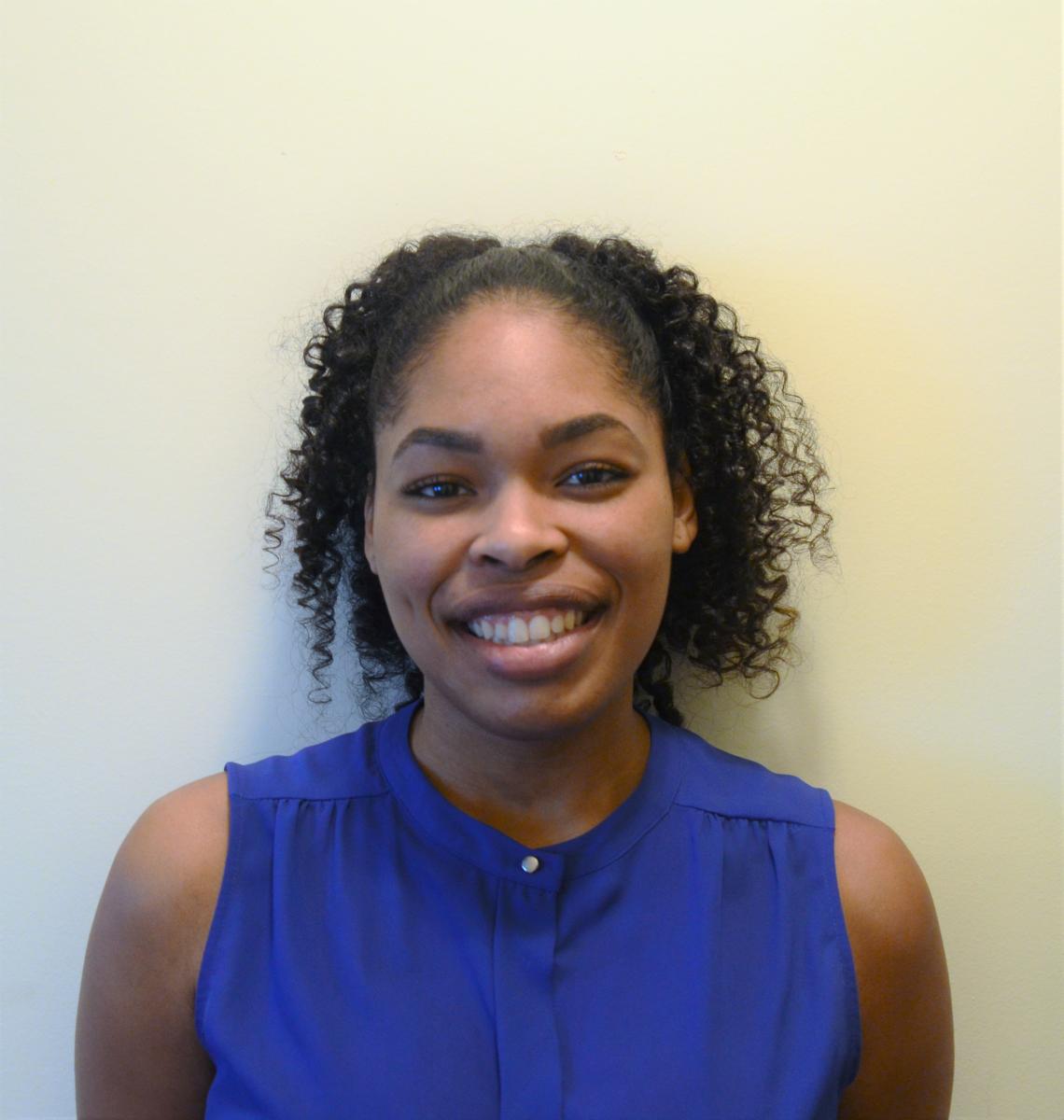 This UMD senior psychology major with a concentration in stratification is interested in issues facing race and ethnicity, specifically colorism and multicultural identity alongside poverty, deviance and displacement within the African American community. Following her experience as an intern for Dr. Sophie Aiver with the African American Studies Department, Bijou plans to obtain her PhD in sociology and eventually become a professor.
This UMD senior psychology major with a concentration in stratification is interested in issues facing race and ethnicity, specifically colorism and multicultural identity alongside poverty, deviance and displacement within the African American community. Following her experience as an intern for Dr. Sophie Aiver with the African American Studies Department, Bijou plans to obtain her PhD in sociology and eventually become a professor.
During the SRI, Bijou will work with Dr. Kris Marsh, an associate professor in the Department of Sociology.
William Bishop
 A senior at Michigan State University (MSU), Bishop is majoring in political science with interests concerning racial politics and public opinion as well as public attitudes towards political actors, policies and social movements. As a part of SRI, Bishop will examine the underlying emotions of the Black Lives Matter and anti-lynching movements and plans to someday pursue a doctoral degree in history or political science.
A senior at Michigan State University (MSU), Bishop is majoring in political science with interests concerning racial politics and public opinion as well as public attitudes towards political actors, policies and social movements. As a part of SRI, Bishop will examine the underlying emotions of the Black Lives Matter and anti-lynching movements and plans to someday pursue a doctoral degree in history or political science.
During the SRI, Bishop will work with Dr. Antoine Banks, an associate professor in the Department of Government and Politics.
Selena Chavez
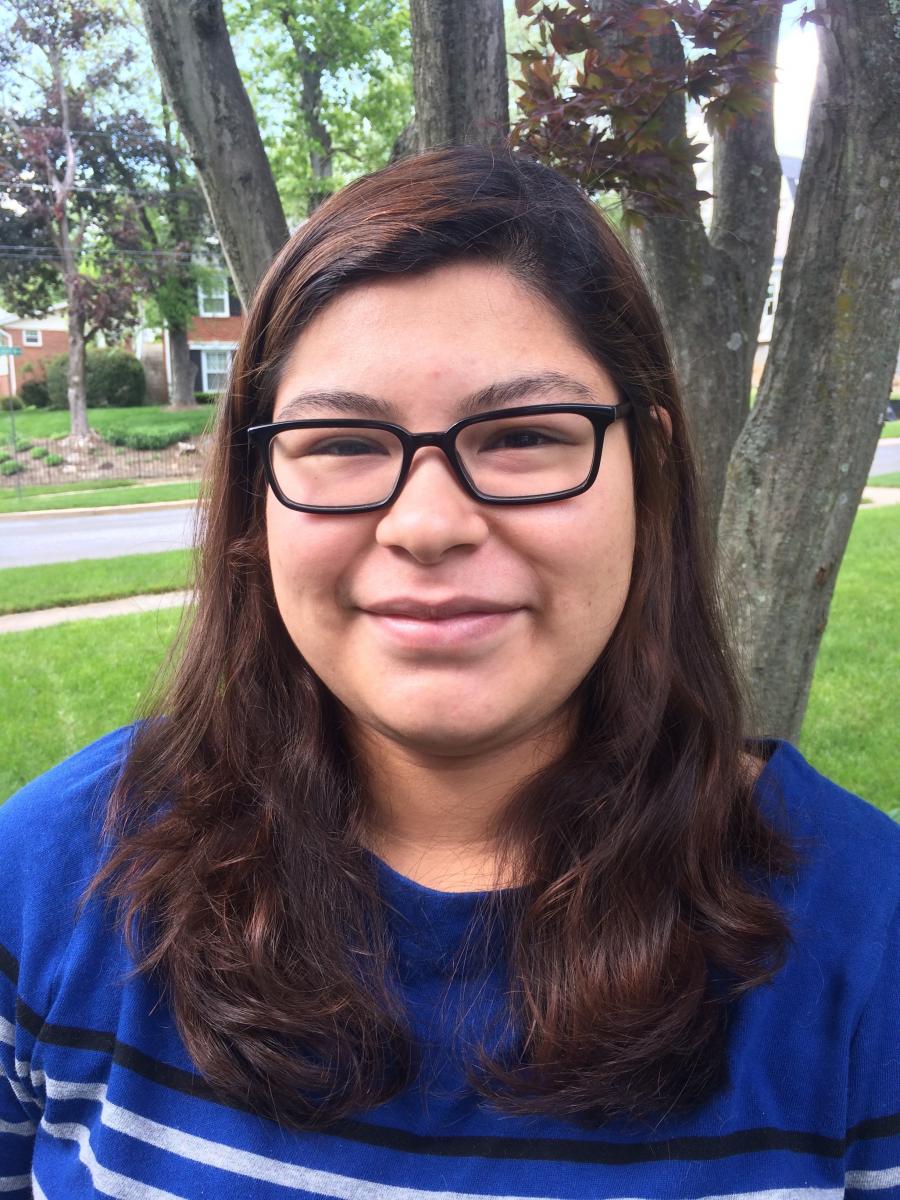 As a senior environmental science and policy major with a concentration in marine and coastal management at the University of Maryland, Chavez is currently tracking current and past locations of the Arkansas River Shiner fish species through the Department of Biology. Chavez is a part of Beta Psi Omega, UMD’s professional biology fraternity, and hopes to obtain either a masters or doctoral degree in either environmental science or physical oceanography.
As a senior environmental science and policy major with a concentration in marine and coastal management at the University of Maryland, Chavez is currently tracking current and past locations of the Arkansas River Shiner fish species through the Department of Biology. Chavez is a part of Beta Psi Omega, UMD’s professional biology fraternity, and hopes to obtain either a masters or doctoral degree in either environmental science or physical oceanography.
Chavez will work with Dr. Matthew Hansen, professor in the Department of Geographical Sciences.
Alec Fields
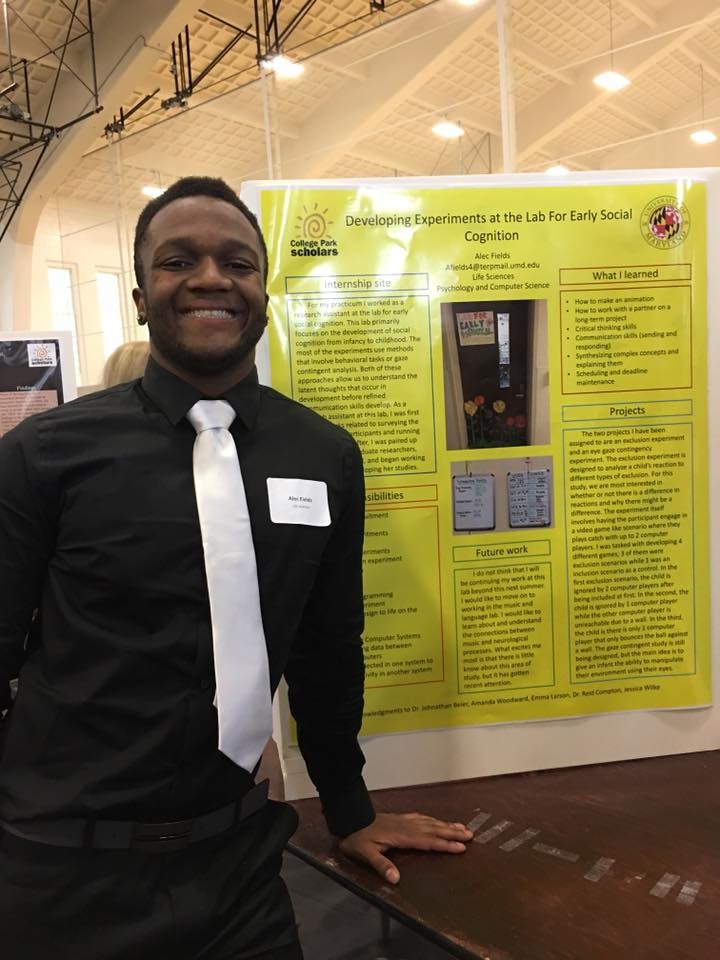 A rising junior at the University of Maryland, Fields is a double degree student in psychology and computer science with a minor in neuroscience and a strong interest in music. At SRI Fields’ research will focus on the mental processes and behavior of children in social situations, and as he eventually pursues a graduate degree in either psychology or neuroscience, Fields would like to study the neurological basis of how music affects the brain.
A rising junior at the University of Maryland, Fields is a double degree student in psychology and computer science with a minor in neuroscience and a strong interest in music. At SRI Fields’ research will focus on the mental processes and behavior of children in social situations, and as he eventually pursues a graduate degree in either psychology or neuroscience, Fields would like to study the neurological basis of how music affects the brain.
During the SRI, Fields will work with Dr. Jonathan Beier, an assistant professor in the Department of Psychology.
Toria Hawkins
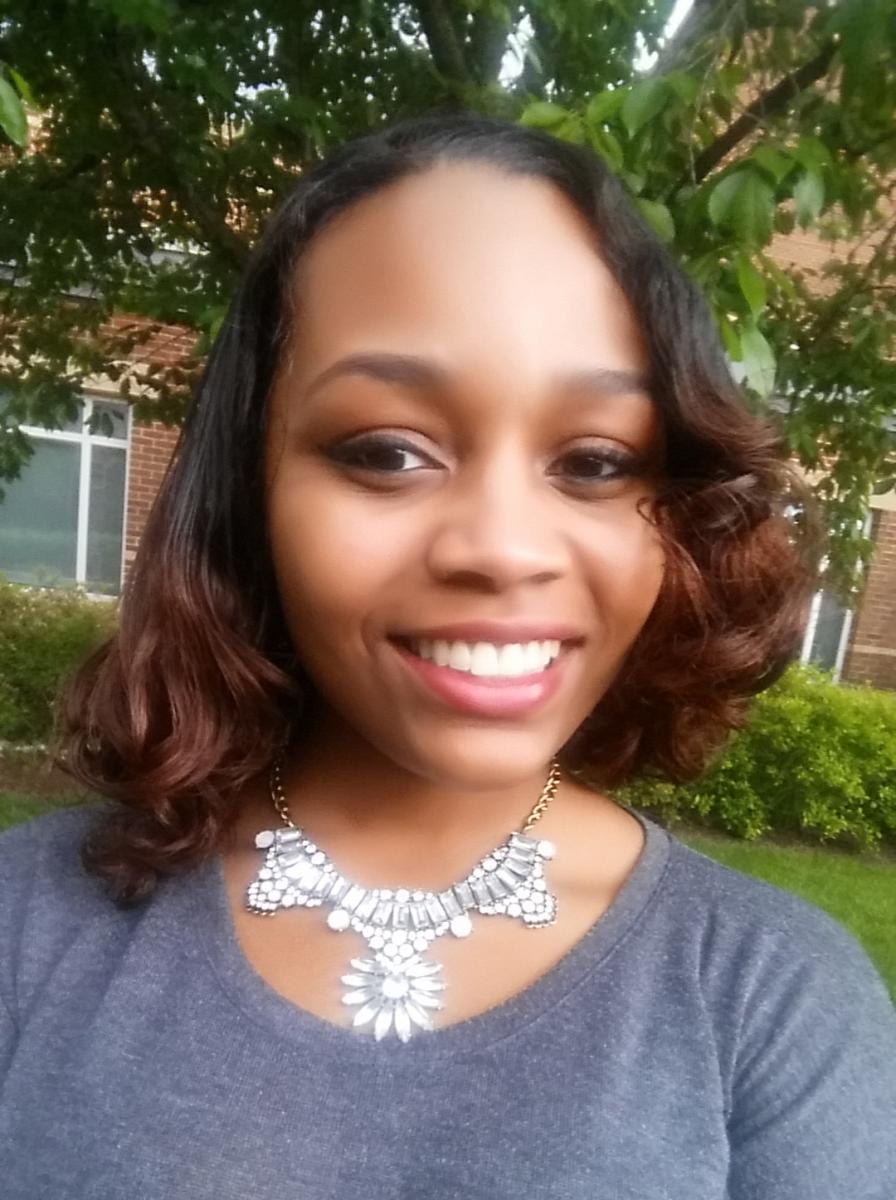 This UMD senior psychology major currently works as a research assistant in Dr. Slevc’s Language, Music and Cognition Lab and her research spans cross-cultural implications of psychological assessment such as differences in emotional manifestations relating to different genders, socio-economic status, race and sexual orientation. Hawkins is interested in the resistance factors of low-income groups and how this influences the way these people self-report symptoms of stress and mood disorders. Hawkins aims to receive a PhD in clinical psychology and eventually return to academia as a psychology professor.
This UMD senior psychology major currently works as a research assistant in Dr. Slevc’s Language, Music and Cognition Lab and her research spans cross-cultural implications of psychological assessment such as differences in emotional manifestations relating to different genders, socio-economic status, race and sexual orientation. Hawkins is interested in the resistance factors of low-income groups and how this influences the way these people self-report symptoms of stress and mood disorders. Hawkins aims to receive a PhD in clinical psychology and eventually return to academia as a psychology professor.
During the SRI, Hawkins will work with Dr. Andres De Los Reyes, an associate professor in the Department of Psychology.
Kenneth James Jr.
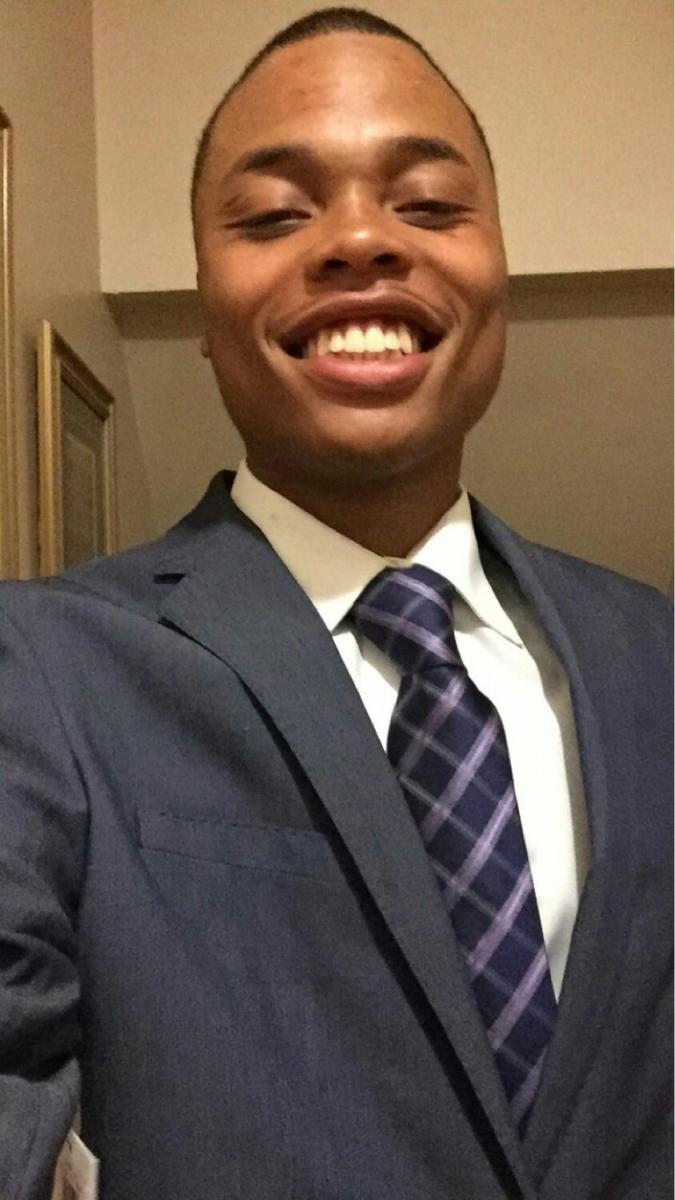 As a Morgan State University psychology major, James is interested in the impact of psychologists on judicial cases, specifically factors that affect racial performance on intelligence tests and high incarceration rates for African Americans. Eventually, James will pursue a graduate degree in forensic psychology.
As a Morgan State University psychology major, James is interested in the impact of psychologists on judicial cases, specifically factors that affect racial performance on intelligence tests and high incarceration rates for African Americans. Eventually, James will pursue a graduate degree in forensic psychology.
James will work with Dr. Farrah Madison, an assistant research professor in the Department of Psychology, during the SRI.
Nicholas John
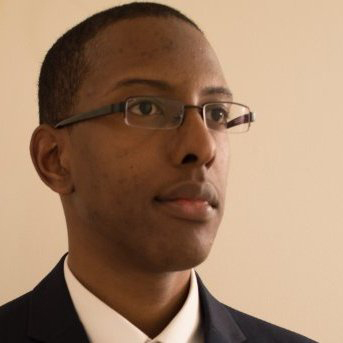 John, a geographical sciences major with a specialization in geographic information science and computer cartography and a minor in remote sensing of environmental change, has conducted research on the distribution of the Hispanic population in Washington, D.C. by creating maps that reveal and compare settlement patterns over time. His most recent works focuses no the development of a database on national security-related content derived from an online source using web scraping techniques.
John, a geographical sciences major with a specialization in geographic information science and computer cartography and a minor in remote sensing of environmental change, has conducted research on the distribution of the Hispanic population in Washington, D.C. by creating maps that reveal and compare settlement patterns over time. His most recent works focuses no the development of a database on national security-related content derived from an online source using web scraping techniques.
John will work with Dr. Matthew Hansen, professor in the Department of Geographical Sciences, during the SRI.
José Lima-Rosas
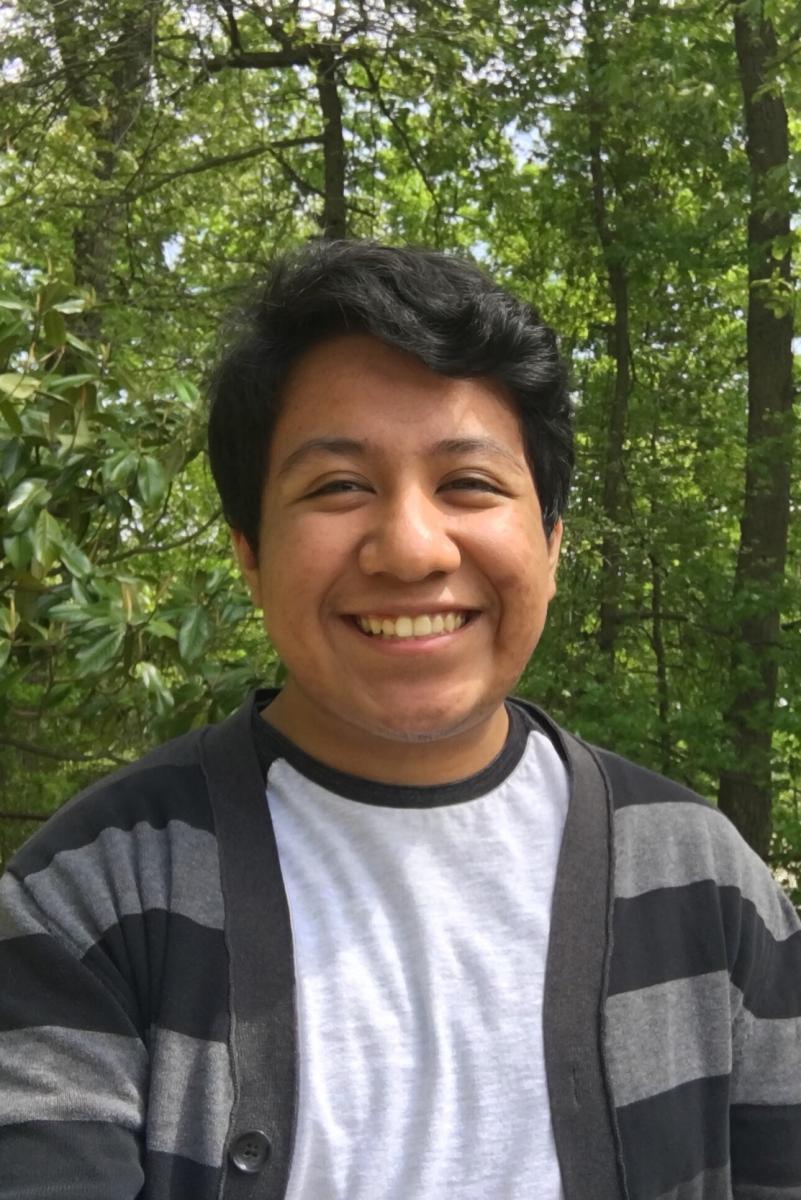 A UMD psychology major with a human development minor, Lima-Rosas is interested in the field of clinical and school psychology, specifically depression, anxiety and coping in younger populations as it relates to stress within schools. Lima-Rosas also hopes to learn how to make mental health education readily available to Latinos, a population that has shown resistance to such services. Lima-Rosas aims to obtain either a doctoral or masters degree.
A UMD psychology major with a human development minor, Lima-Rosas is interested in the field of clinical and school psychology, specifically depression, anxiety and coping in younger populations as it relates to stress within schools. Lima-Rosas also hopes to learn how to make mental health education readily available to Latinos, a population that has shown resistance to such services. Lima-Rosas aims to obtain either a doctoral or masters degree.
During the SRI, Lima-Rosas will work with Dr. Jonathan Beier, an assistant professor in the Department of Psychology.
Ebonie Massey
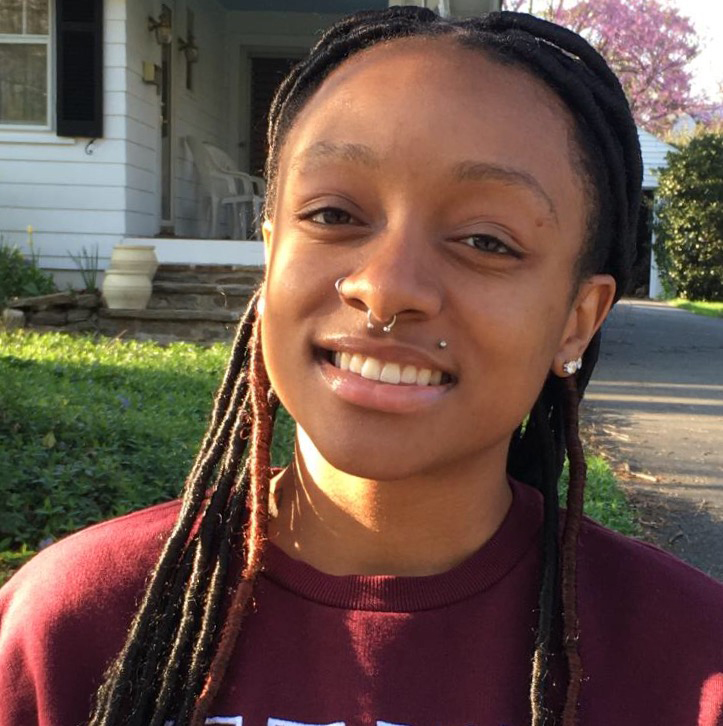 Massey is a senior UMD double major studying sociology (concentration in stratification) and criminology and criminal justice. Massey is a part of the University Honors program and is a member of Alpha Kappa Delta, an international honor society for the field of sociology. Massey’s primary research interests focus on interpersonal relationship and an analysis of crime, and Massey plans to earn a masters degree in sociology and then a law degree with a focus in criminal law.
Massey is a senior UMD double major studying sociology (concentration in stratification) and criminology and criminal justice. Massey is a part of the University Honors program and is a member of Alpha Kappa Delta, an international honor society for the field of sociology. Massey’s primary research interests focus on interpersonal relationship and an analysis of crime, and Massey plans to earn a masters degree in sociology and then a law degree with a focus in criminal law.
Massey will work with Dr. Jeff Lucas, professor and associate chair in the Department of Sociology, during the SRI.
Bezankeng Njinju
 Njinju is a Rochester Institute of Technology (RIT) sophomore applied mathematics and economics double major who focuses her research on development and behavioral economics. Njinju plans to obtain a doctoral degree in economics to eventually become an economics professor.
Njinju is a Rochester Institute of Technology (RIT) sophomore applied mathematics and economics double major who focuses her research on development and behavioral economics. Njinju plans to obtain a doctoral degree in economics to eventually become an economics professor.
During the SRI, Njinju will work with Dr. Jessica Goldberg, an assistant professor in the Department of Economics.
Edwin Rodriguez
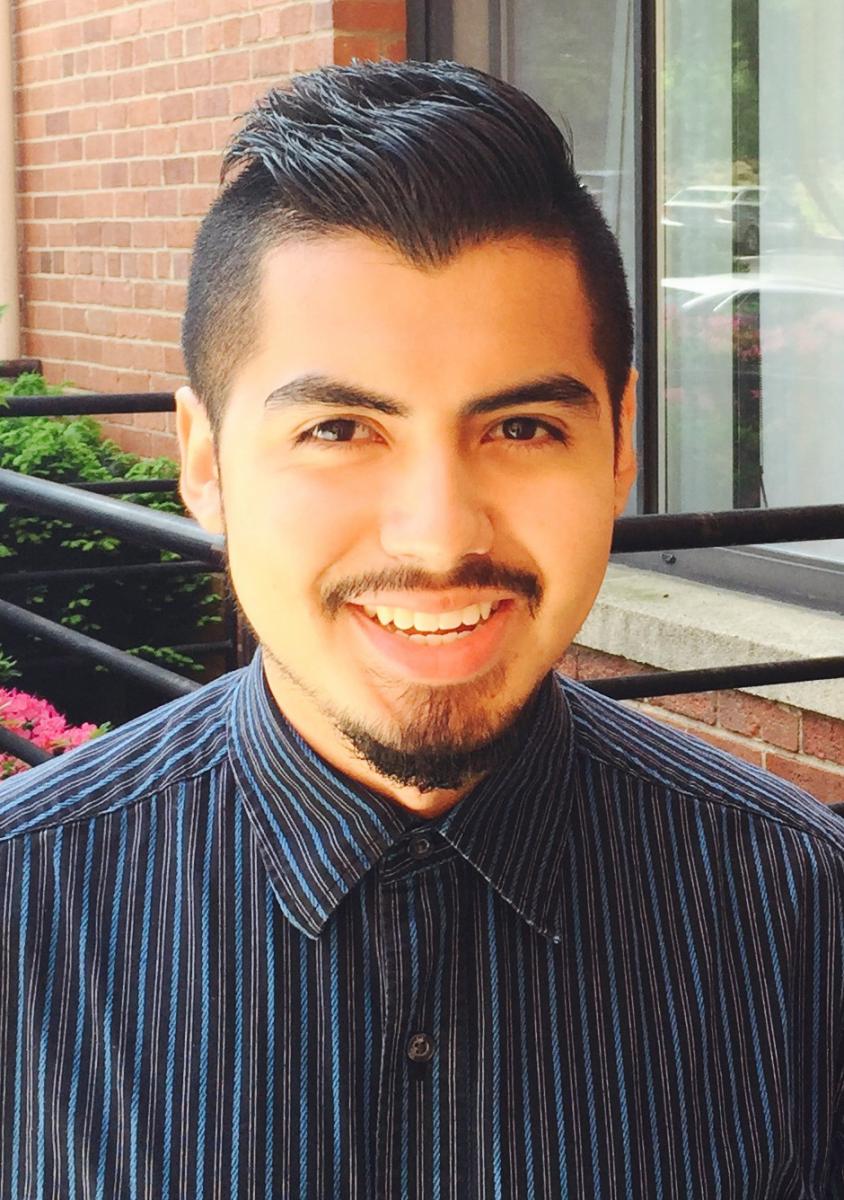 Rodriguez, a UMD senior criminology and criminal justice major, recently received his associate’s degree from Montgomery College and intends to also obtain a master’s degree in criminology and criminal justice. Rodriguez is particularly interested in researching policing, victimization risk, gang violence and life-course criminology, which he will study via SRI and apply during his graduate studies.
Rodriguez, a UMD senior criminology and criminal justice major, recently received his associate’s degree from Montgomery College and intends to also obtain a master’s degree in criminology and criminal justice. Rodriguez is particularly interested in researching policing, victimization risk, gang violence and life-course criminology, which he will study via SRI and apply during his graduate studies.
Rodriguez will work with Dr. Jim Lynch, professor and chair, and Dr. Jean McGloin, professor and associate chair, in the Department of Criminology and Criminal Justice, during the SRI.
Gabriela Rosa-Hernández
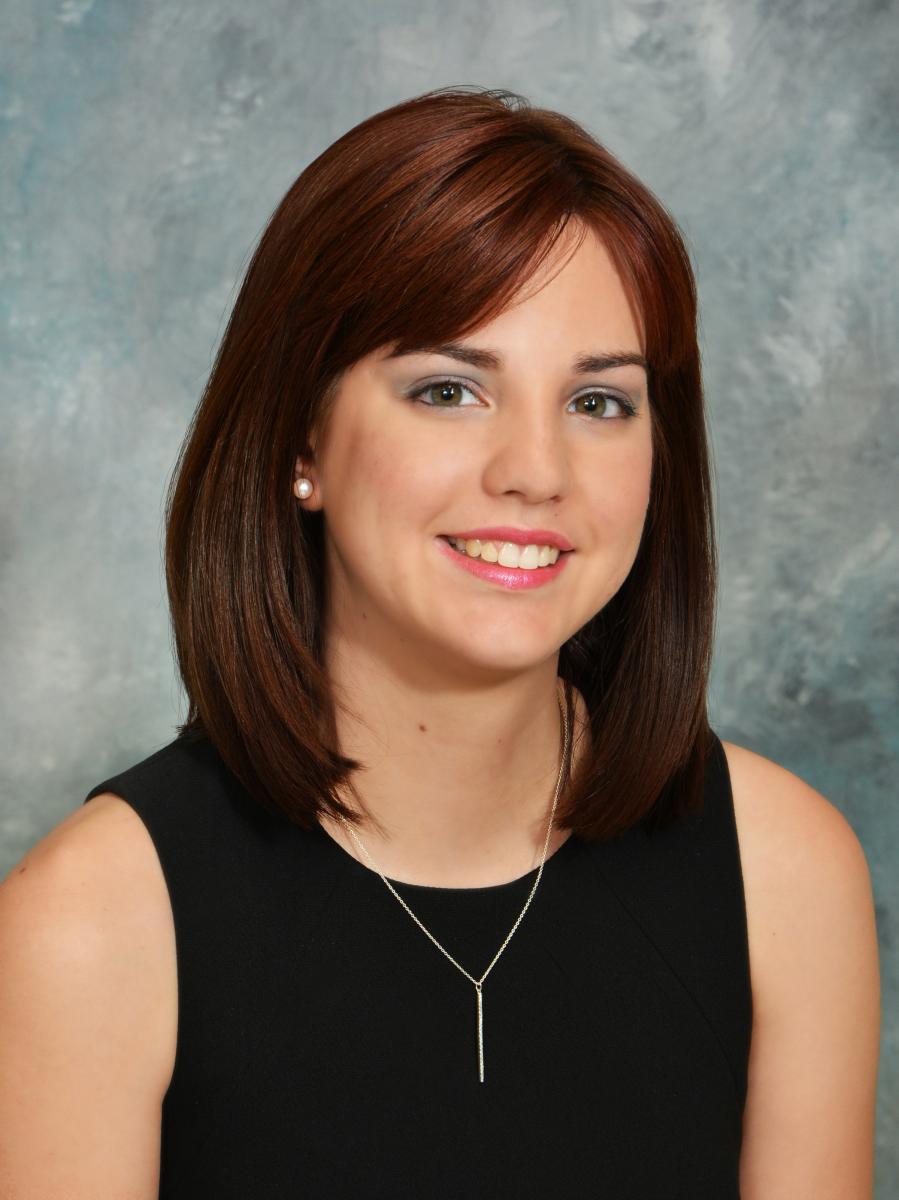 A senior sociology major at the University of Puerto Rico, Rio Piedras campus, Rosa- Hernandez is particularly interested in military sociology, history and strategy, evident by her current research on war propaganda- specifically, the depiction of the United States and Soviet Union during World War II and the Cold War. Rosa-Hernandez wishes to pursue a PhD in security studies and hopes to forge a career in the U.S. Department of Defense, State, Homeland Security or other federal agency.
A senior sociology major at the University of Puerto Rico, Rio Piedras campus, Rosa- Hernandez is particularly interested in military sociology, history and strategy, evident by her current research on war propaganda- specifically, the depiction of the United States and Soviet Union during World War II and the Cold War. Rosa-Hernandez wishes to pursue a PhD in security studies and hopes to forge a career in the U.S. Department of Defense, State, Homeland Security or other federal agency.
During the SRI, Rosa-Hernandez will work with Dr. Meredith Kleykamp, professor, and Dr. Thomas Crosbie, a postdoctoral research fellow in the Department of Sociology.
Keren Rosario-Ortiz
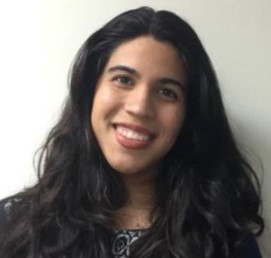 Rosario-Ortiz is a senior special education major with an emphasis in deaf studies and autism at the University of Puerto Rico, Rio Piedras campus. Rosario-Ortiz is currently conducting research on communication and its effect on social skills in adults with autism, but is also interested by educational linguistics, psycholinguistics and acquisition of language in the deaf community. Rosario-Ortiz plans to pursue a doctoral degree in speech-language pathology and then become a professor and researcher.
Rosario-Ortiz is a senior special education major with an emphasis in deaf studies and autism at the University of Puerto Rico, Rio Piedras campus. Rosario-Ortiz is currently conducting research on communication and its effect on social skills in adults with autism, but is also interested by educational linguistics, psycholinguistics and acquisition of language in the deaf community. Rosario-Ortiz plans to pursue a doctoral degree in speech-language pathology and then become a professor and researcher.
Rosario-Ortiz will work with Dr. Rochelle Newman, professor and chair, and Ms. Melissa Stockbridge, a master’s/doctoral student in the Department of Hearing and Speech Sciences, during the SRI.
Emily Sheffield
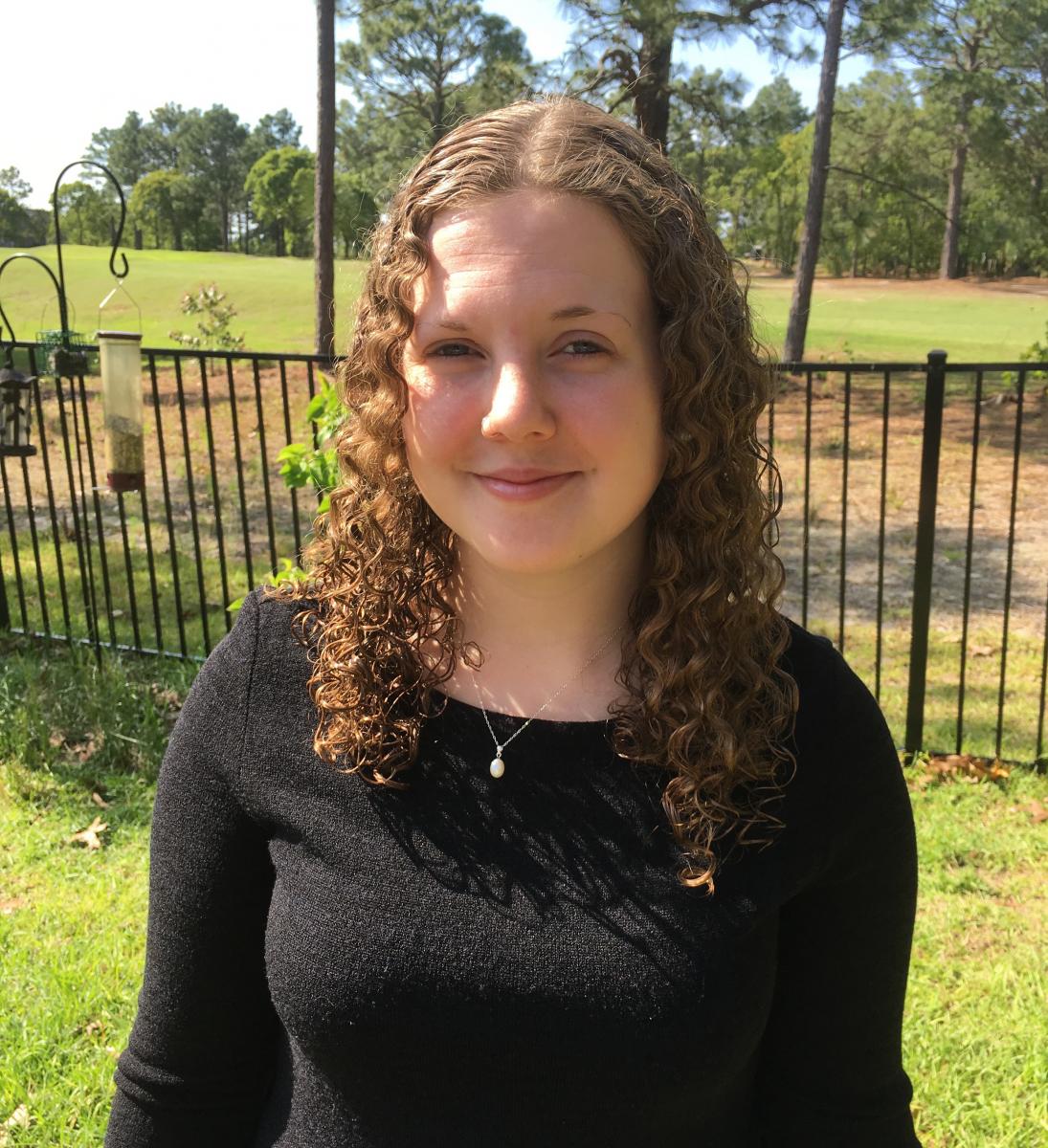 This University of North Carolina, Chapel Hill senior is double majoring in biology and African American and diaspora studies and has recently been conducting research on sexual violence during the Rwandan Genocide. Sheffield’s other research interests include studying the impacts of health disparity and disease on African and African diasporic communities, which she hopes to study further as she pursues a doctoral degree in either medical anthropology or African studies.
This University of North Carolina, Chapel Hill senior is double majoring in biology and African American and diaspora studies and has recently been conducting research on sexual violence during the Rwandan Genocide. Sheffield’s other research interests include studying the impacts of health disparity and disease on African and African diasporic communities, which she hopes to study further as she pursues a doctoral degree in either medical anthropology or African studies.
During the SRI, Sheffield will work with Dr. Thurka Sangaramoorthy, an assistant professor, and Ms. Emilia Guevara, a doctoral student in the Department of Anthropology.
Victoria Stackfield
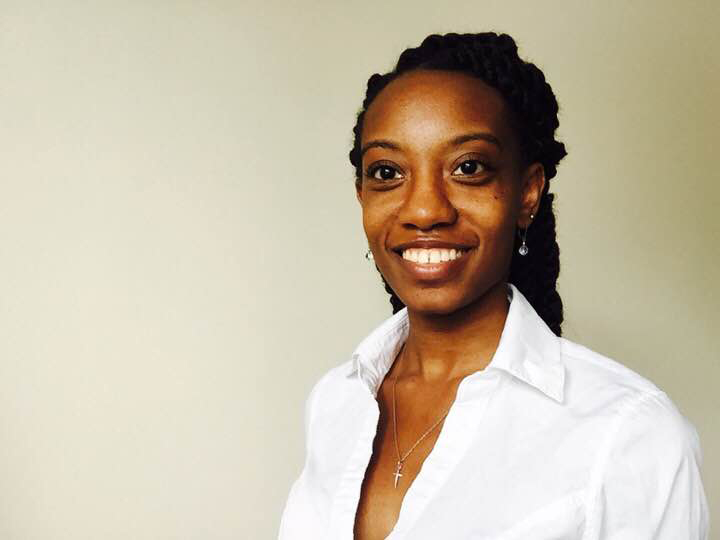 Stackfield graduated from Spelman College this spring with cum laude honors, obtaining a bachelor’s degree in psychology with a minor in anthropology. Stackfield has conducted research on stereotype maintenance and male restrictive emotionality, and is now interested in studying intergenerational crime and the intersection between the prevalence of anti-social behavior and delinquency among individuals of low socioeconomic status and disrupted familial bonds.
Stackfield graduated from Spelman College this spring with cum laude honors, obtaining a bachelor’s degree in psychology with a minor in anthropology. Stackfield has conducted research on stereotype maintenance and male restrictive emotionality, and is now interested in studying intergenerational crime and the intersection between the prevalence of anti-social behavior and delinquency among individuals of low socioeconomic status and disrupted familial bonds.
Stackfield will work with Dr. Jim Lynch, professor and chair, and Dr. Jean McGloin, professor and associate chair, in the Department of Criminology and Criminal Justice, during the SRI.
SRI Alumni Testimonials
Scholars who have participated in the Summer Research Initiative consistently rate their experience as very rewarding, informative, challenging, and enjoyable. The program allows them to develop meaningful relationships and connections with their fellow scholars and faculty. They are often able to better articulate their goals for graduate school and expand their knowledge of ongoing research in their field of interest. Please see the following testimonials provided by some SRI alums.
Edwin Rodriguez (2016 SRI) and Drs. Jim Lynch and Jean McGloin, Criminology and Criminal Justice: "Understanding Differences in Public Perceptions of the Police"
During SRI, I learned many things. If I were to list them all, I'd be here forever, so I will give you the three most important things I learned.
1) Graduate School and How To Apply - Before SRI, graduate school had never really crossed my mind. Originally, I planned to attain a Bachelor's degree and then find a job. I had no idea how graduate school even worked and it seemed more daunting than it did appealing. SRI showed me the value of attaining a graduate school education and even provided me with a wealth of resources and contacts to ensure that the application process was crystal clear and that if I ever have questions at any point during the application process, I know who to contact.
2) Networking - Before SRI, my network of contacts was very limited. I was close to a few professors, but besides that, my network was anything but vast. Today my network is flourishing. SRI gave me access into a world of academia I had not known before. I got to meet professors, advisers, associate deans, deans themselves, department chairs, graduate students, and so many more people. My network continues to grow because SRI made sure that I left the program knowing how to contact and communicate with people and how to continue building my network. The networking skills that I acquired during SRI have helped me expand my network into other colleges and programs at the university and I now have a job as a research assistant for the Fall semester in the Sociology department (a department I would have never come into contact with had it not been for SRI) and I was also accepted into the BSOS Ambassadors Program (a prestigious program where a select few are allowed to represent the College of Behavioral Sciences at UMD).
3) I Learned About Myself - SRI is a rigorous program and participants are expected to do graduate-level work. I remember moments during the program where everyone in the house would stress out over deadlines, feel frustrated over the workload that was being thrown at us, and feel desperate to finish the program at whatever cost. There were many times when I felt out of place. Out of the sixteen people who were living in the house, I was the only one who did not see myself going to graduate school. I felt overwhelmed by the amount of work I was expected to do in such a short amount of time and I often found myself saying, "Graduate school isn't for me." Now that the program is over, I can only laugh at how ridiculous I must have sounded. Like everyone else, I found the strength to keep pushing forward. I began to realize that I was capable of much more than what I had originally thought. Before SRI, I knew I was smart but I was never able to take the leaps that others knew I could take. I let the fear of the unknown control my decision-making and school was more of a routine than an enjoyable experience. Today, I am not afraid to push myself. I am more involved than ever at UMD and I have never been so excited to continue furthering my education and graduate school is now a reality worth grasping instead of a distant possibility.
For someone who would like to participate in SRI, the best advice I can give is: JUST DO IT! Whether you are a student who knows that graduate school is in your future, a student who is undecided, or a student who is just looking for an internship over the summer, SRI will be a beneficial experience. The experiences one is exposed to and the skills one learns are useful no matter what field or occupation you decide to go into. However, SRI is no joke. If you are willing to participate and get accepted, you have to make the effort to embrace EVERYTHING. SRI offers many things and I would hate to see someone not appreciate the opportunity they have been given. If this is something you want to apply to, know beforehand that this will not be your ordinary internship. Be prepared to do work and to get out of your comfort zone. Finally, if you find yourself being able to embrace absolutely everything, the fun part will come easier than you think. This has been the best summer of my life and if I could do it all over again, I would.
Stephanie Bermudez-Cruz (2015 SRI) and Dr. Alexander Shackman, Psychology: "Neurobiological Systems Underlying Transient and Sustained Responses to Threat"
Being in this program has been a blessing. I wish I could extend my time in it or have the chance in the near future to reunite with some of the people who are new friends. Beyond interacting with others, being mentored in a psych lab and exploring the College Park and D.C. areas, I have learned so much about the graduate admissions process and what research entails, and I made some important self-discoveries. To sum it up, I came in with little to no expectations of what it might be like and, after the first night, I was excited about what each day might bring. I can already feel that it's going to be a bittersweet return home.
Giselle Hernandez (2015 SRI) and Dr. Brooke Bocast, Anthropology: "Modes of Being, Time, and Space: An Exploration of Potentiality in a Ugandan Village"
I am so grateful that I was given the opportunity to participate in SRI. Not only did I develop research skills in my areas of interest, but I was able to make connections with other students who studied entirely different things from me. One of the most valuable takeaways from this program was the network of scholars that it introduced me to and allowed me to build on. Through mentorship, seminars, and support from my peers, this program gave me the confidence and knowledge to develop a competitive graduate application and pursue an array of research projects. I also made some lifelong friends.
Nishel Savory (2014 SRI) and Dr. Matthew Roesch, Psychology: "Impact of Cocaine Self-Administration on Escape-Avoidance"
Participating in the SRI program was life-changing. When I first arrived I was naïve because this was my first experience in an actual science laboratory. During my time at the university, I was fortunate to work in the Psychology department under the supervision of my mentor Dr. Gregory Bissonetteand my PI Dr. Matthew Roesch where we studied the effects of cocaine on decision making. My PI and I had individualized weekly lab meetings to discuss interesting articles, go over my personal statement, curriculum vitae, and anything he thought would be essential for my growth as a scientist. Through these meetings, I learned how to formulate and test hypotheses all while enduring long hours of research in the lab, all of which was gratifying as the research was important and fascinating. SRI also provided trips to the National Institutes of Health, American Psychological Association, and National Science Foundation where I learned about acquiring grant funding and more information on how to succeed in graduate school. During the 2 months, I was able to meet other scholars who are now my lifelong friends, but most importantly, I was able to learn great networking and analytical skills. At the end of the program, my growth and knowledge about research was noticeable. The internship lasted 8 weeks, but the support from the director, coordinator and even my PI continue, and it is motivating me to work harder to become a successful scientist.
Jaime Herrera (2009 SRI) and Dr. Laura Dugan, Criminology and Criminal Justice: "Unattributed and Attributed Suicide Attacks for Quarter One of 2008"
I enjoyed everything about the SRI experience because I had the chance to learn a great deal about the graduate school application process, network with very interesting people, and become familiar with the research process. Plus, I took pleasure seeing the sights in the D.C. area. I was lucky enough to be paired next to Dr. Laura Dugan and her graduate research assistant, James Hendrickson, who both worked with the National Consortium for the Study of Terrorism and Responses to Terrorism (START) team. My research project focused on the terrorist attacks that occurred worldwide in the first three months of 2008 and tried to answer why a large amount of them were not attributed to any terrorist group. I also worked on improving the Global Terrorism Database (GTD) by verifying the first quarter of 2008 for all correct data for each incident throughout that time.
It was a great opportunity to learn from the very knowledgeable and experienced professionals of the START team. START held weekly Summer Enrichment Series discussions where a presenter from the team or special guests from other centers of research would present his/her interests or work linked with various topics and current events related to terrorism. There were also bi-weekly meetings which also went well because they were a great way to make sure I and the other interns were progressing properly and to see what other interns at START were doing in their projects. Both of my mentors made sure to guide me while I put my research presentation together and gave me great advice. They introduced me to many ideas on terrorism and helped me think about my future career. I found the SRI program very informing and rewarding.
Maria Rodriguez (2009 SRI) and Dr. Rochelle Newman, Hearing and Speech Sciences: "Comparing Monolingual and Bilingual Infants' Ability to Recognize Speech in Noise"
When I initially applied to the program I wasn't sure how it would coincide with my interests, but after taking a Normal Language Acquisition course I became fascinated, almost obsessed with the language development theories and case-studies. While at SRI, I worked in the Language Development Laboratory with Dr. Rochelle Newman of the Department of Hearing and Speech Sciences. I worked daily in the laboratory except for scheduled excursions. SRI allowed me to work with both doctoral, master's and undergraduate students. Besides acquiring research lab protocol along with methodology from Dr. Newman, I was able to utilize her students as resources as well. During my time in the lab I was involved with all facets of daily laboratory activities which included: making phone calls; scheduling appointments; serving as a liaison to parents, and conducting trials. Laboratory conditions allowed me to familiarize myself with programs, such as SPSS, where I have had the opportunity to transform raw data into statistical analysis. The experience illustrated the lifecycle of running a trial; everything from contacting the participant's parents to the final coding of the data. I was amazed at the process of collecting data and its transformation into something that would later be published in a journal.
Even though the program was very intensive and rigorous, it was still enjoyable and informative. My days were comprised of working in the lab and then returning to the dorm in the evening to compile my research project. I did this for two months, having free time only on the weekends when SRI events were not scheduled. For anyone interested in applying, you must be able to uphold the professionalism and dedication that the program requires.
What did I take away from the University of Maryland's 2009 Summer Research Initiative program? Today, I am not the same naive person that embarked on this journey. SRI has matured me, making me more confident and professional. I have received numerous accolades and support from family, friends, faculty and even the president of my university spoke about my experience during his address. I have most recently had the initiative to reach out to fellow researchers and obtained an internship with New York University. SRI has been an epiphany in my life, where I have grown both professionally and personally. I highly recommend this program to anyone and everyone who wants to succeed and make a difference in their lives an the lives of others.
Wayne Taliaferro (2009 SRI) and Dr. Odis Johnson, African American Studies: "Teacher and Student Determinants of African-American Dispositions Toward Learning"
This past summer I worked in the Department of African American Studies with Dr. Odis Johnson researching elements of the black-white achievement gap. We examined student and teacher determinants of African-American dispositions toward learning with a focus on anti-achievement identity, aspirations, and expectations. As an out-of-the-box thinker, the program gave me the opportunity to fully embrace interdisciplinary approaches. However, while the research portion of this experience was very educational, the most rewarding part of this experience was the individualized attention, mentoring and insight from both my mentor and everyone involved in the program. Not only was I given the chance to sharpen my research skills, but I was regularly engaged about the graduate school process with helpful tools that I would not have otherwise received. Additionally, I had the opportunity to work with eight other scholars from campuses across the nation and form lasting friendships with each of them.














